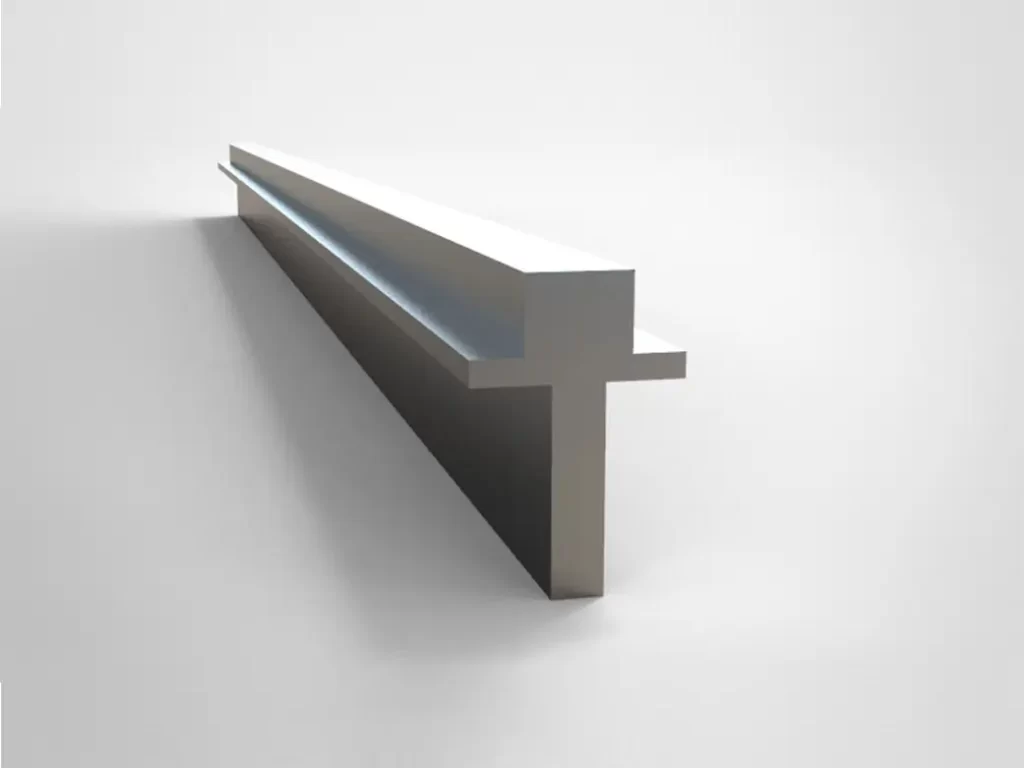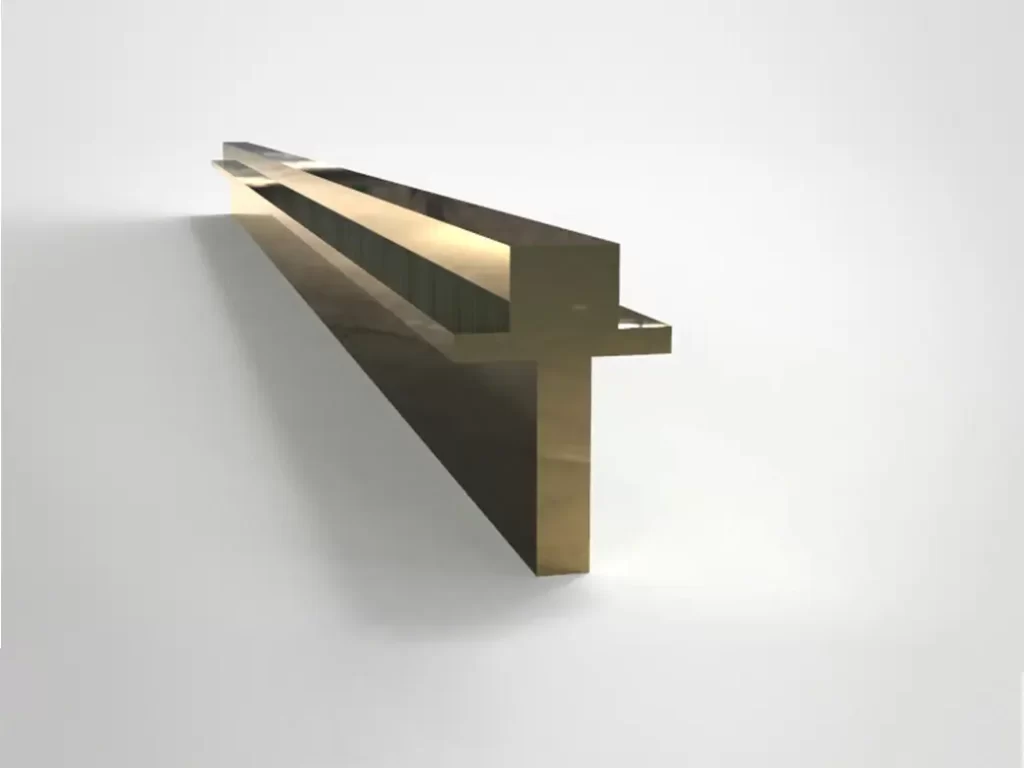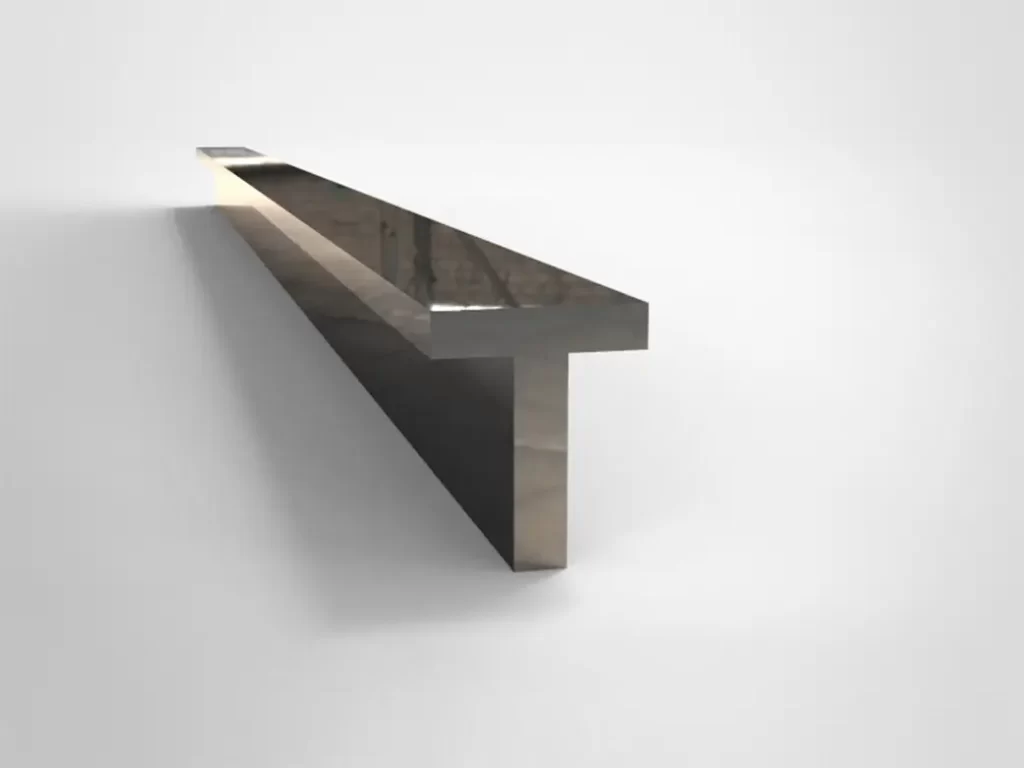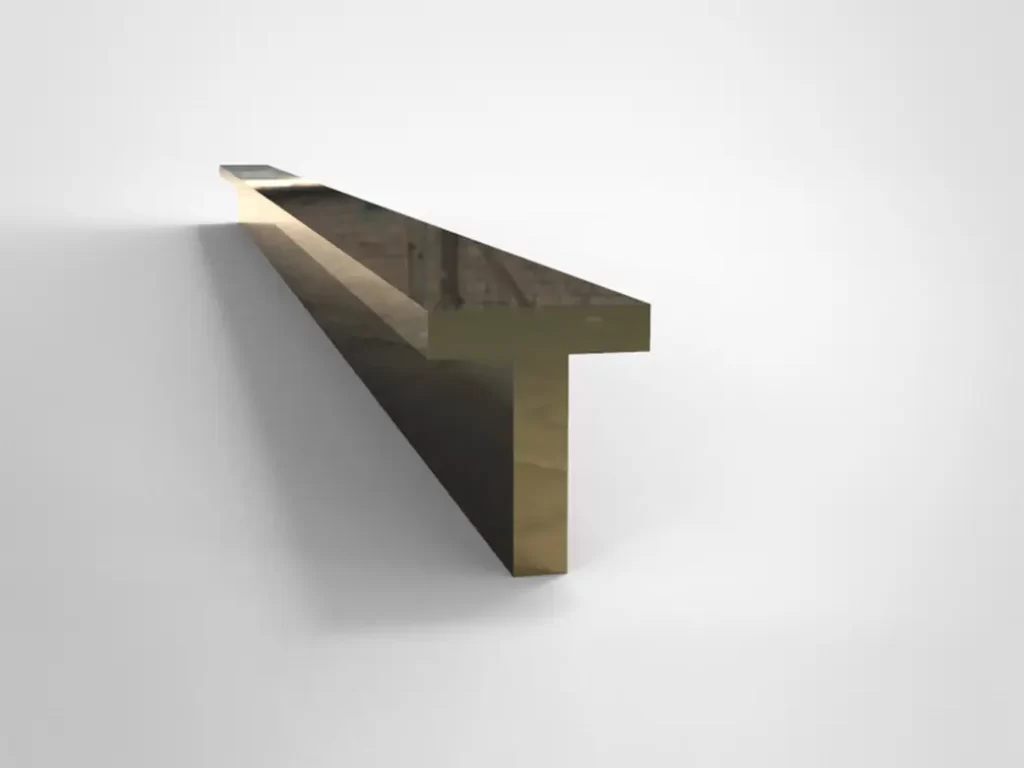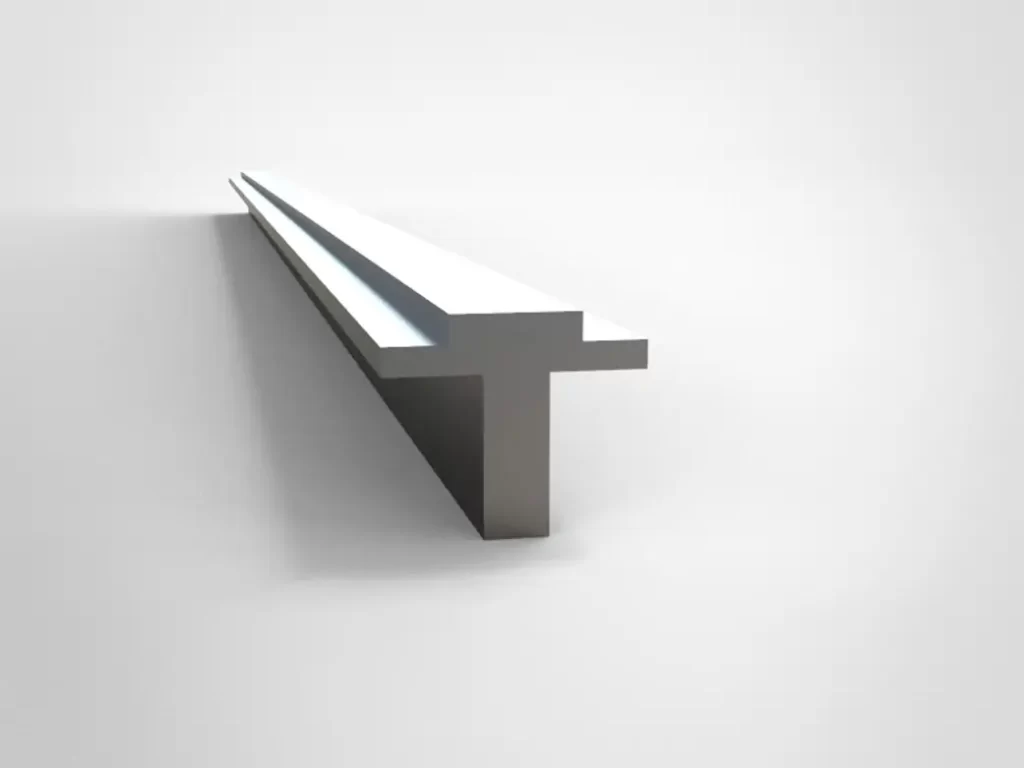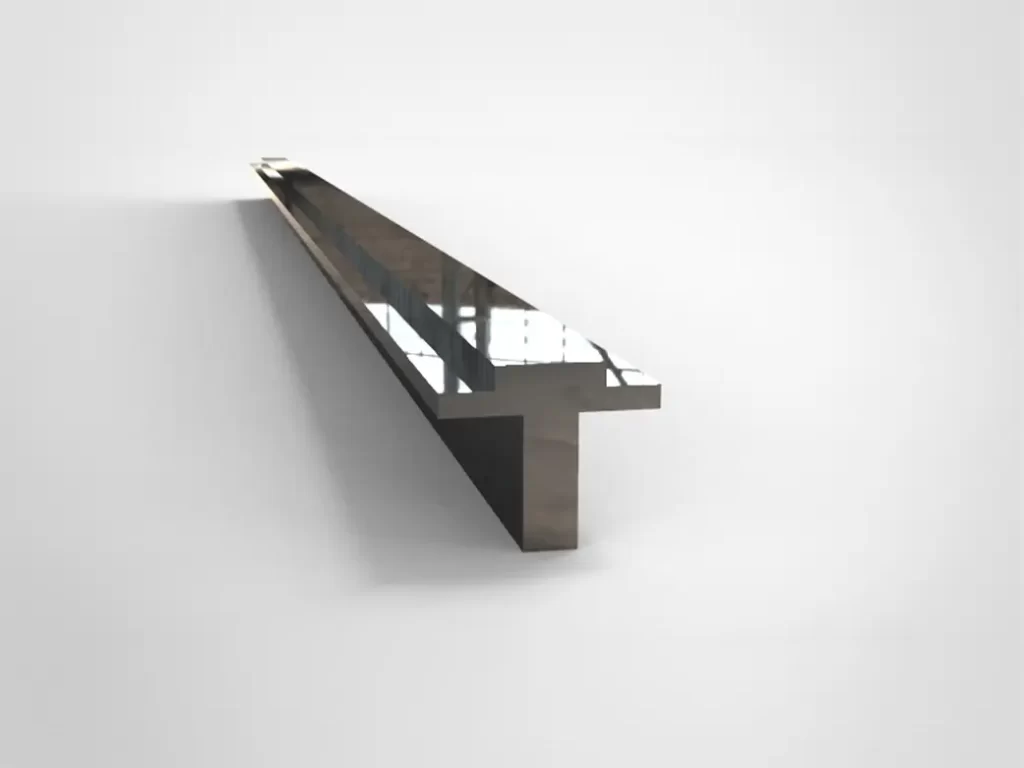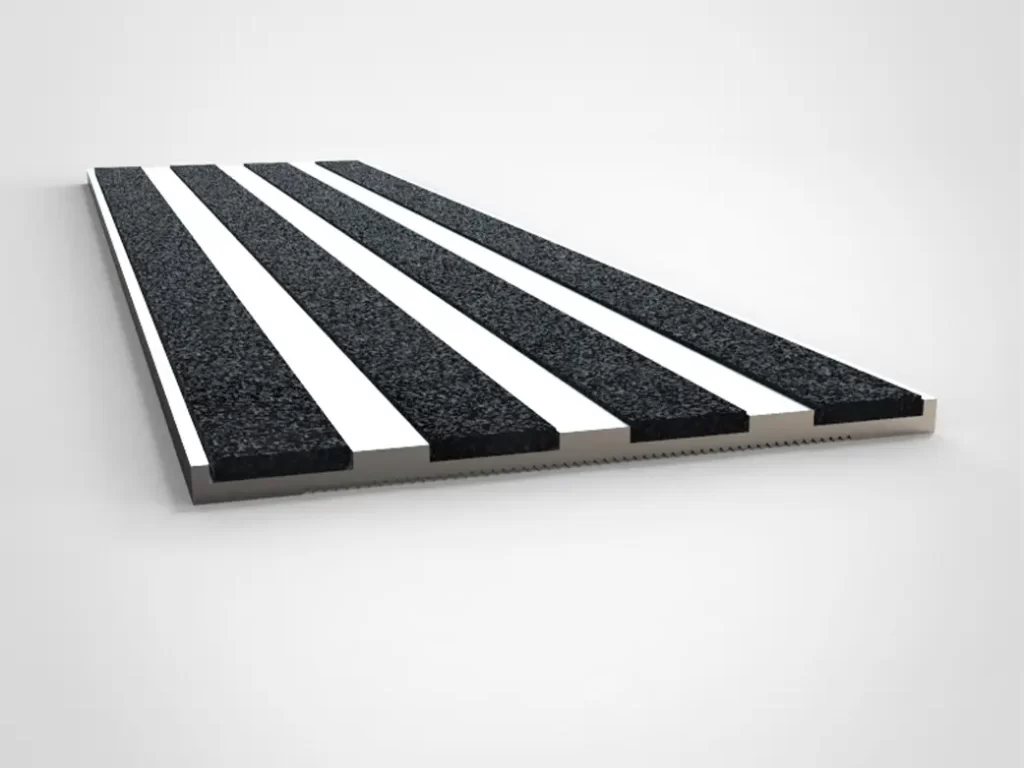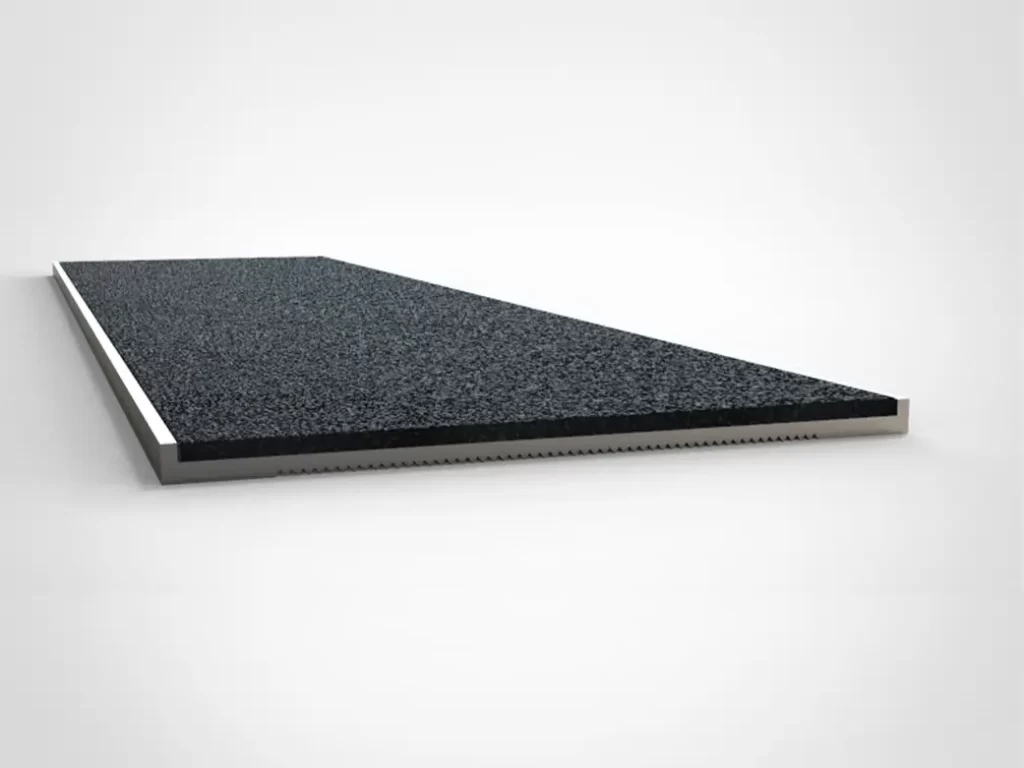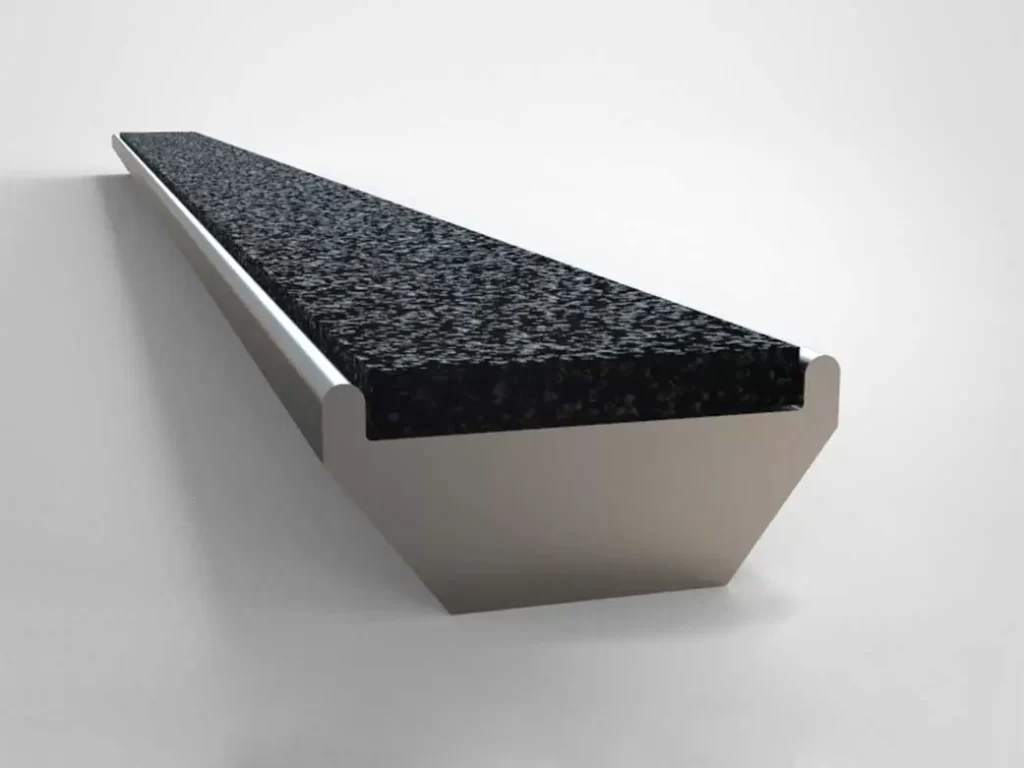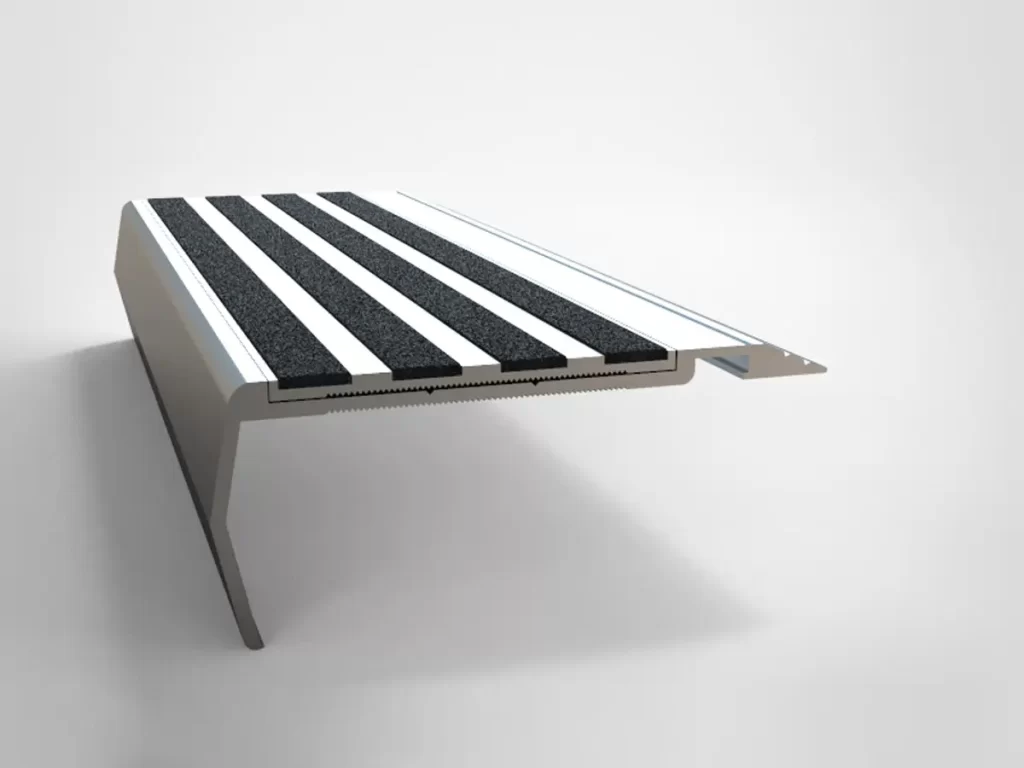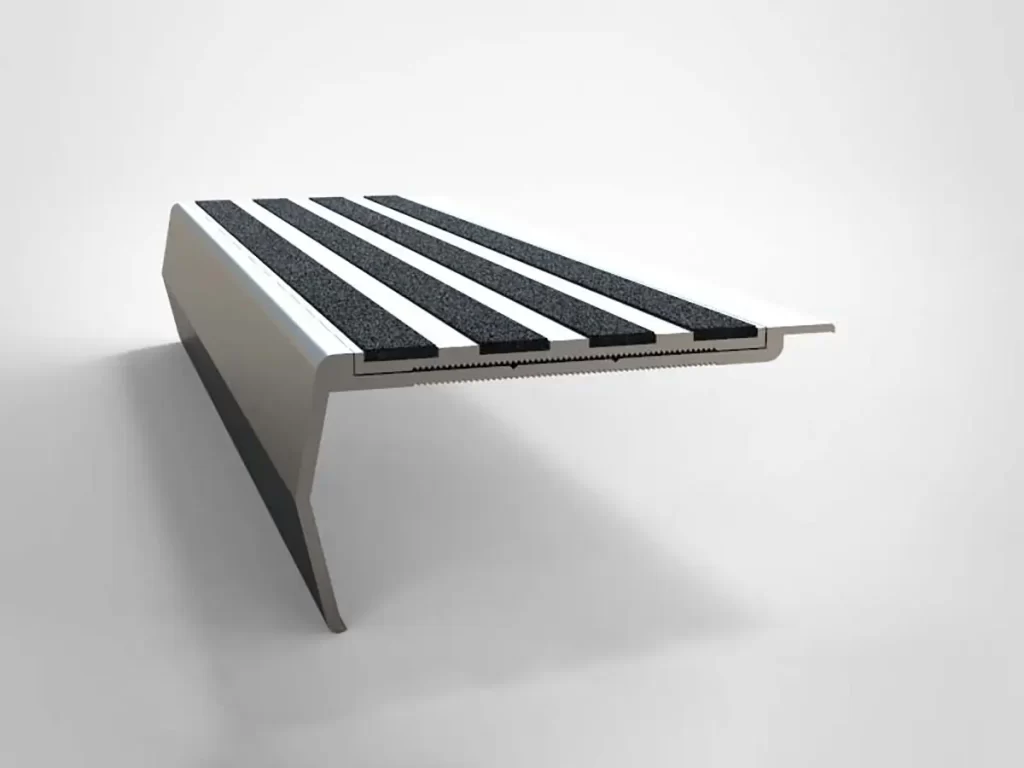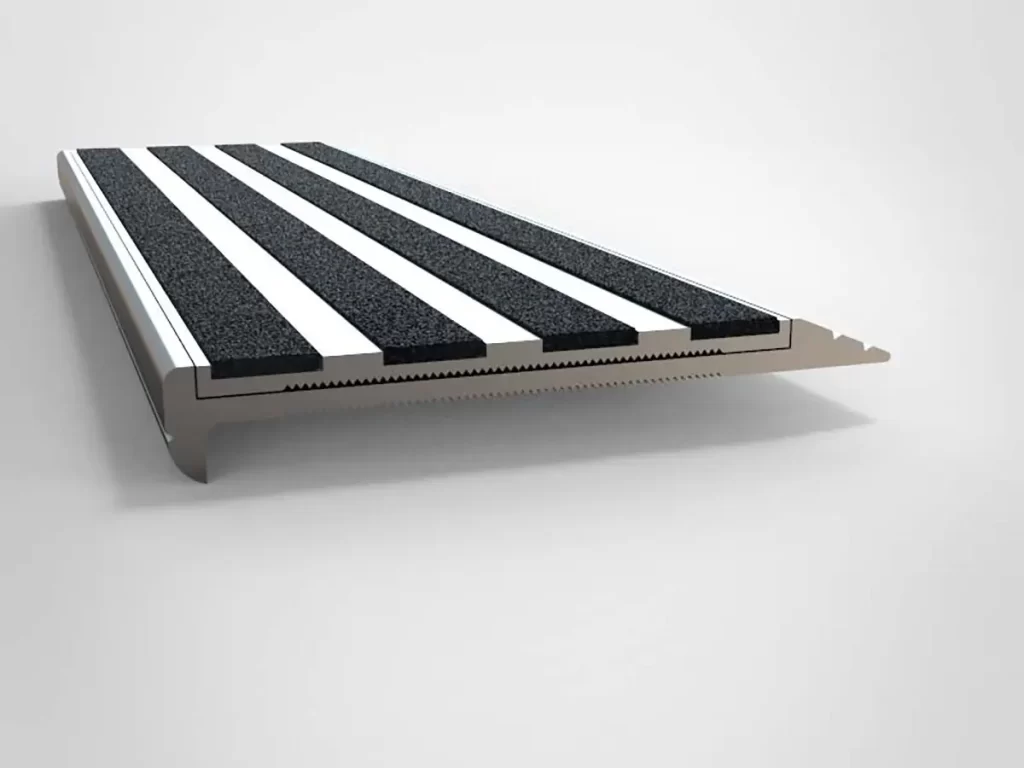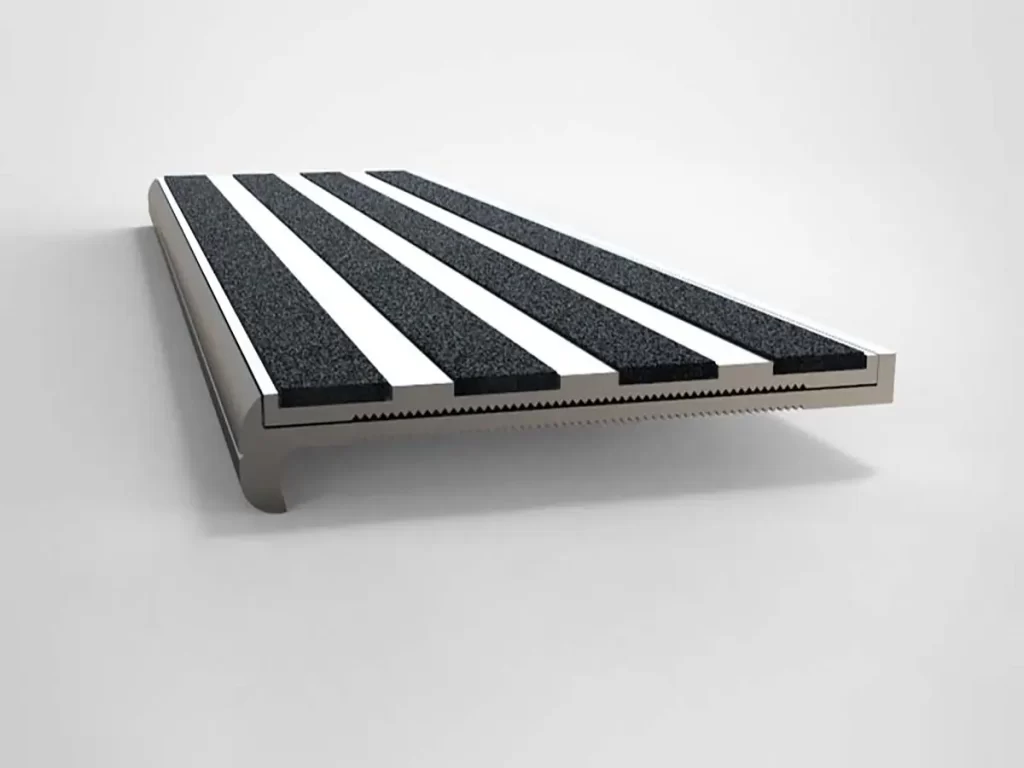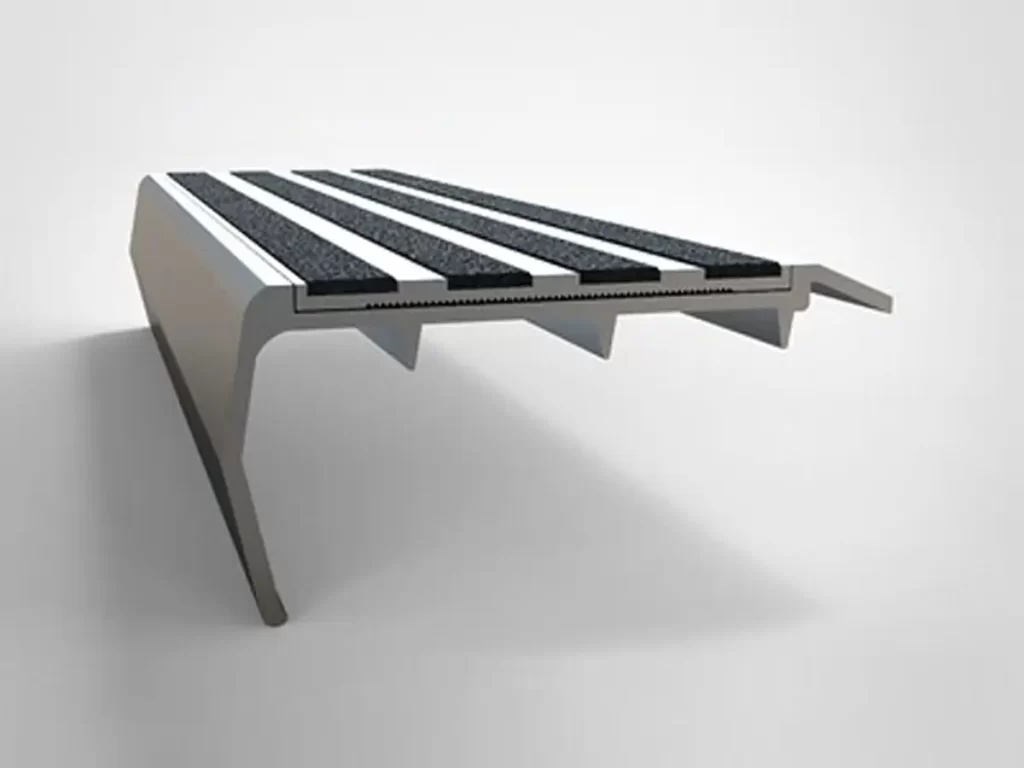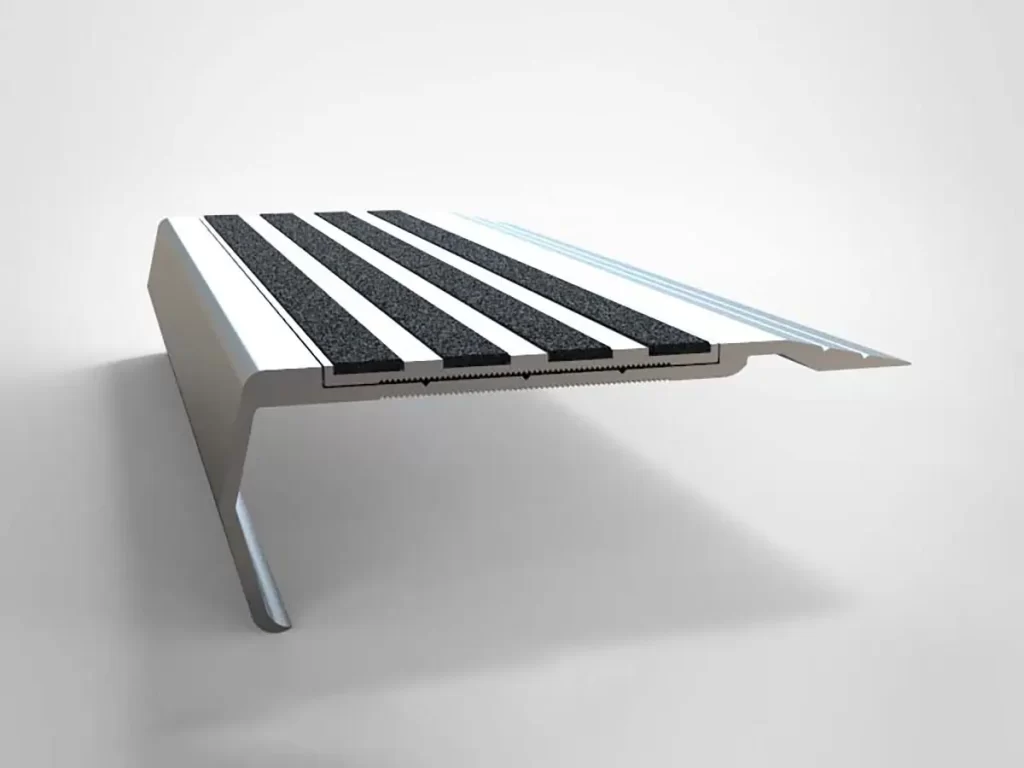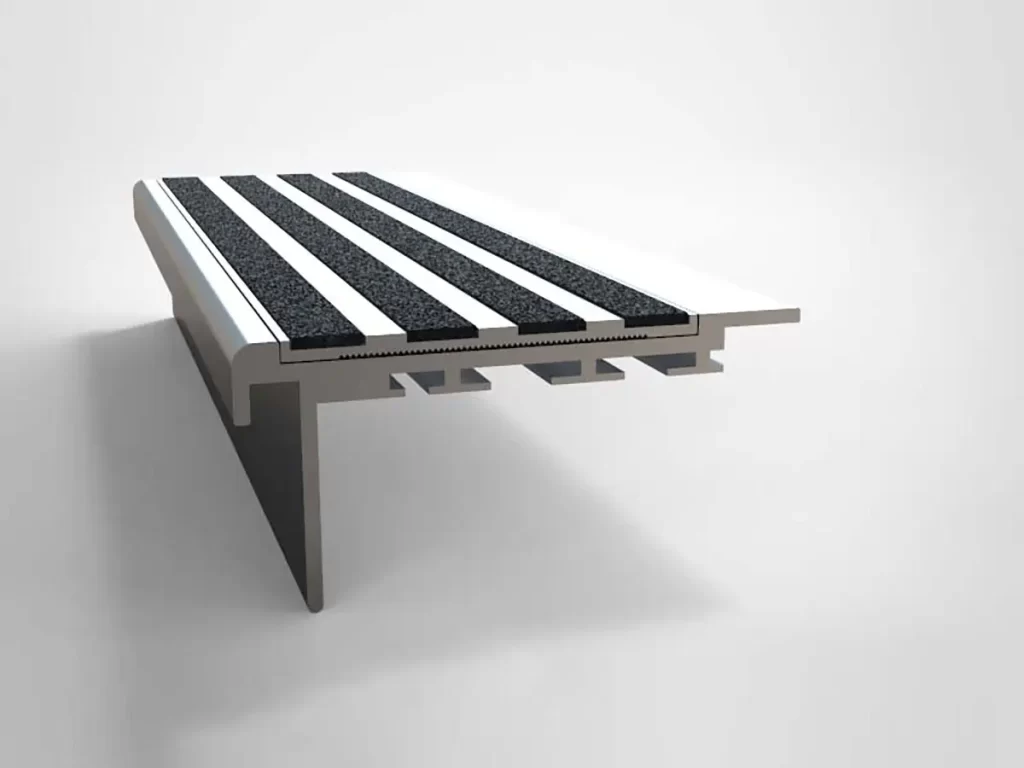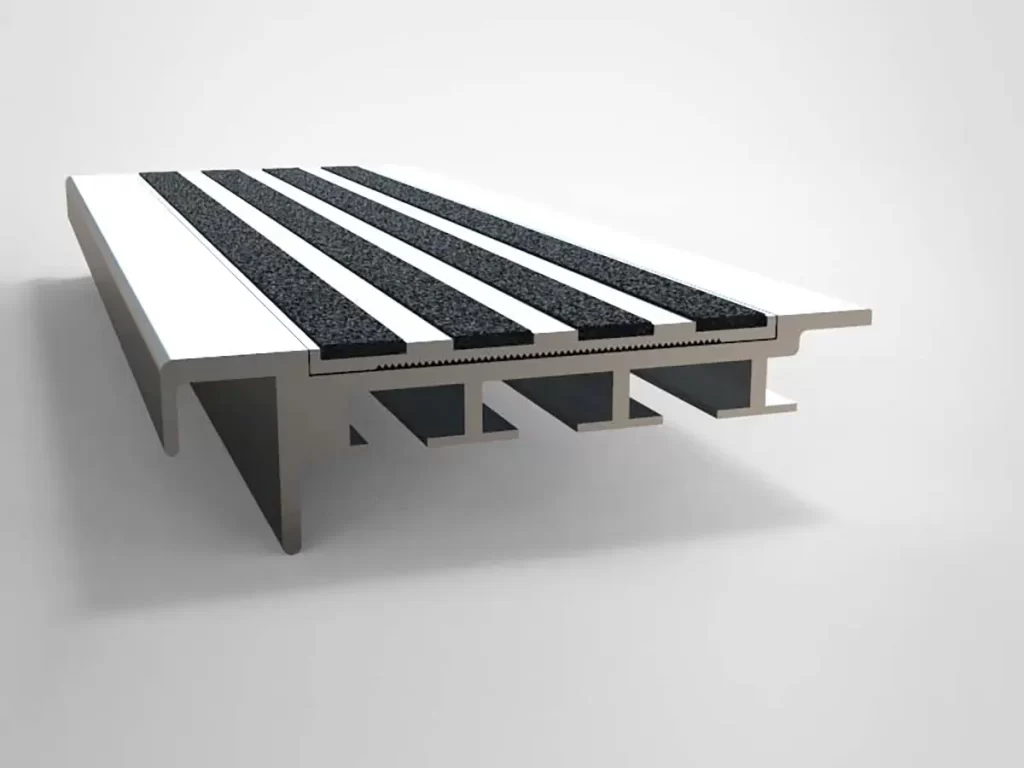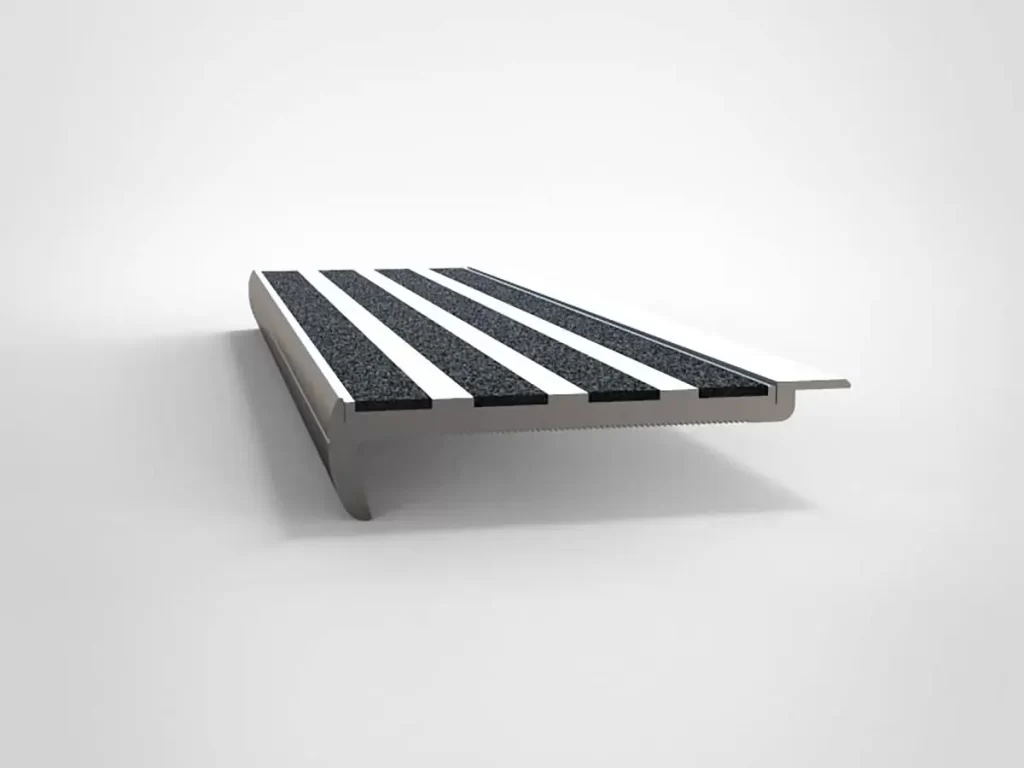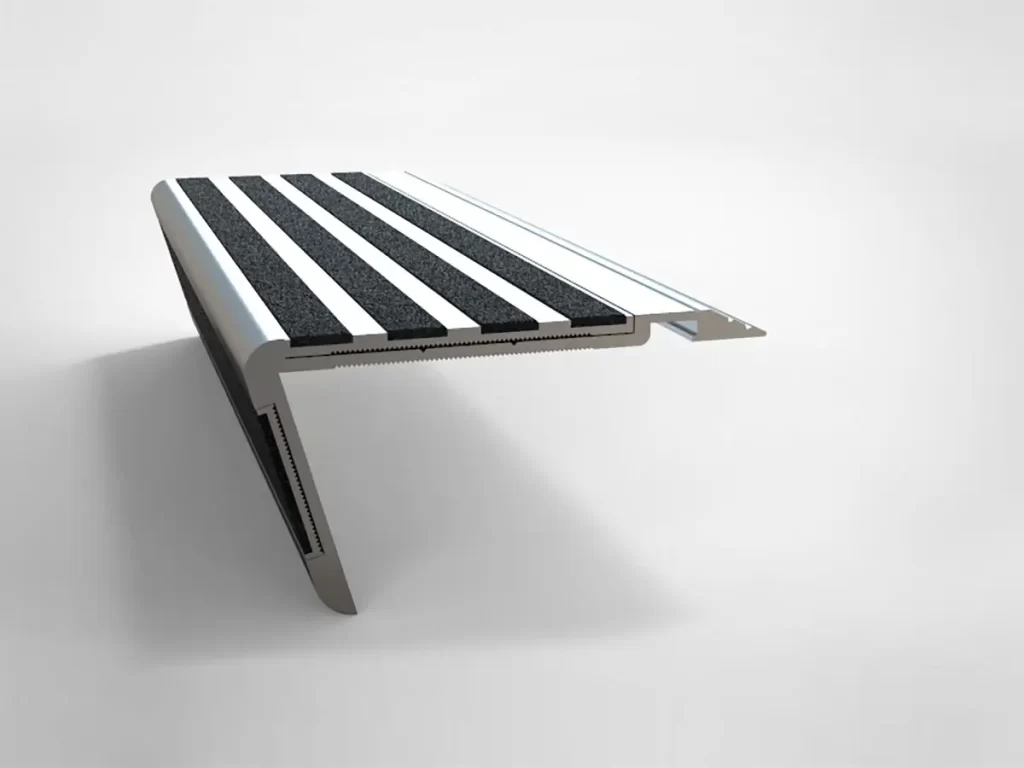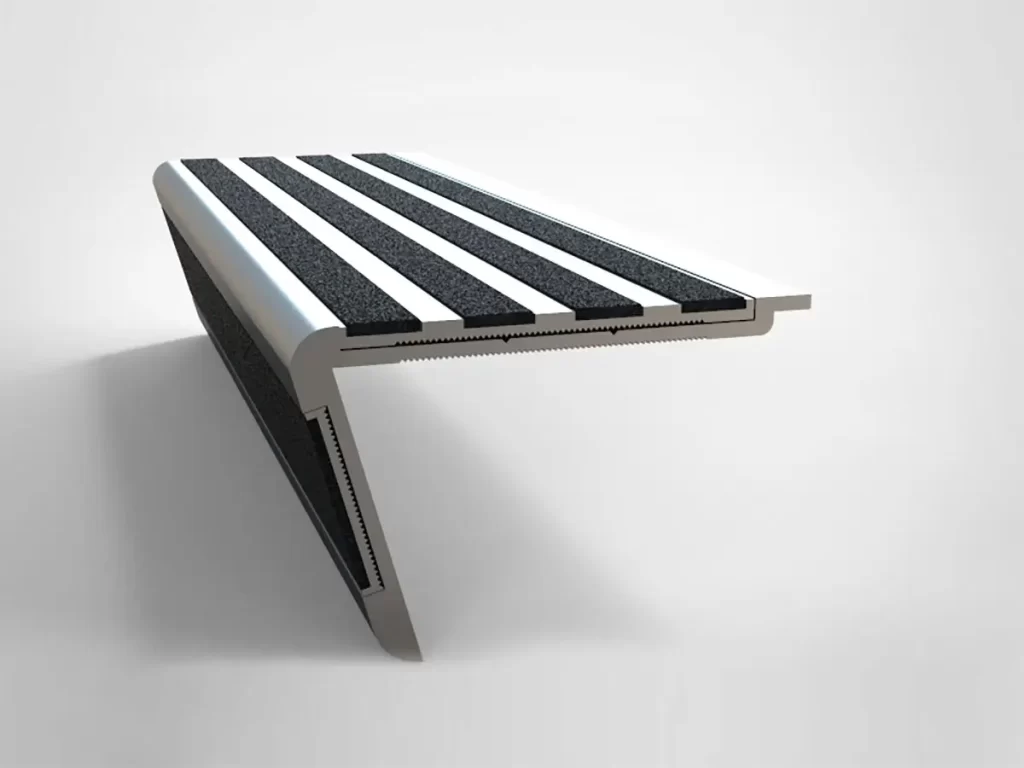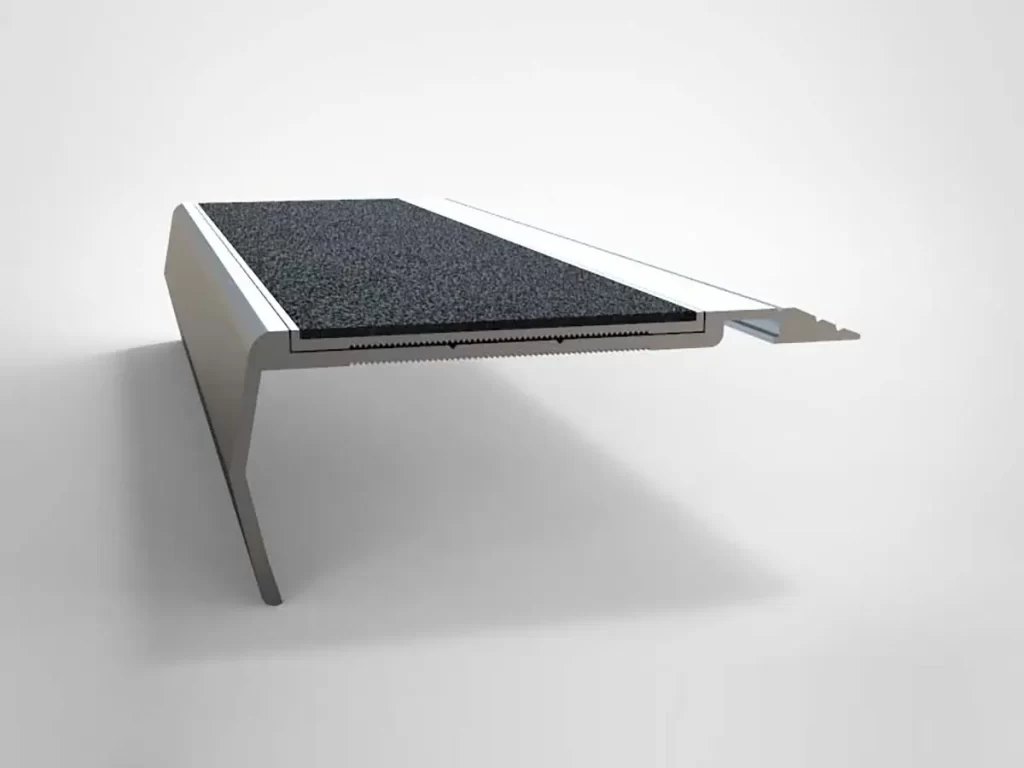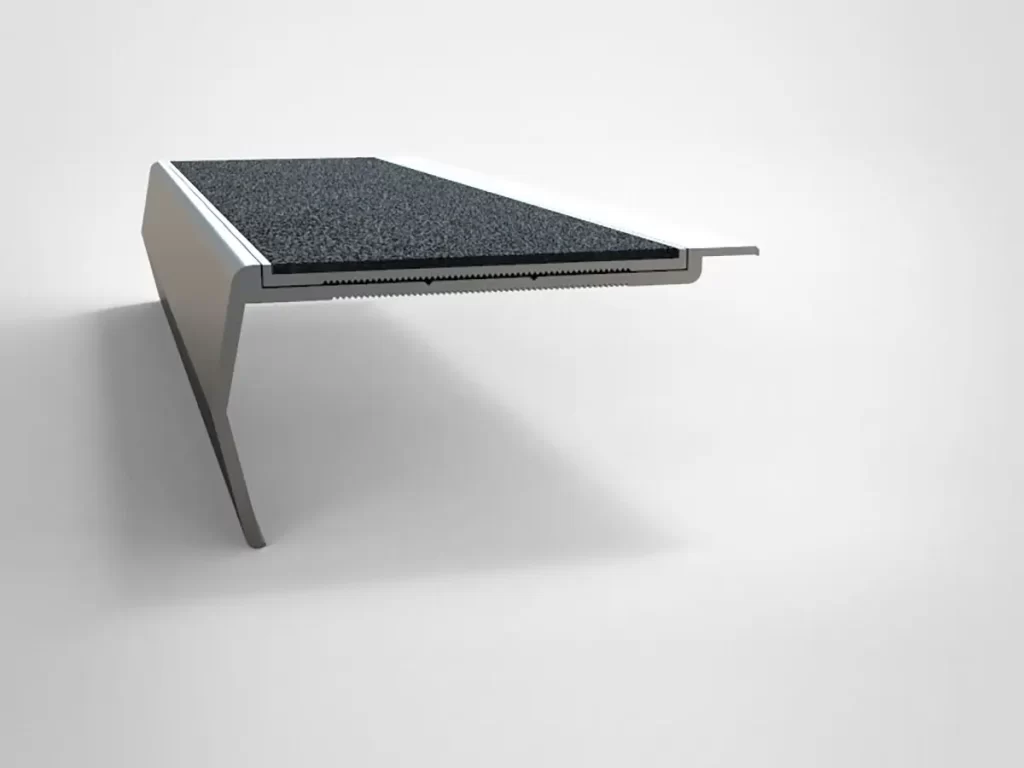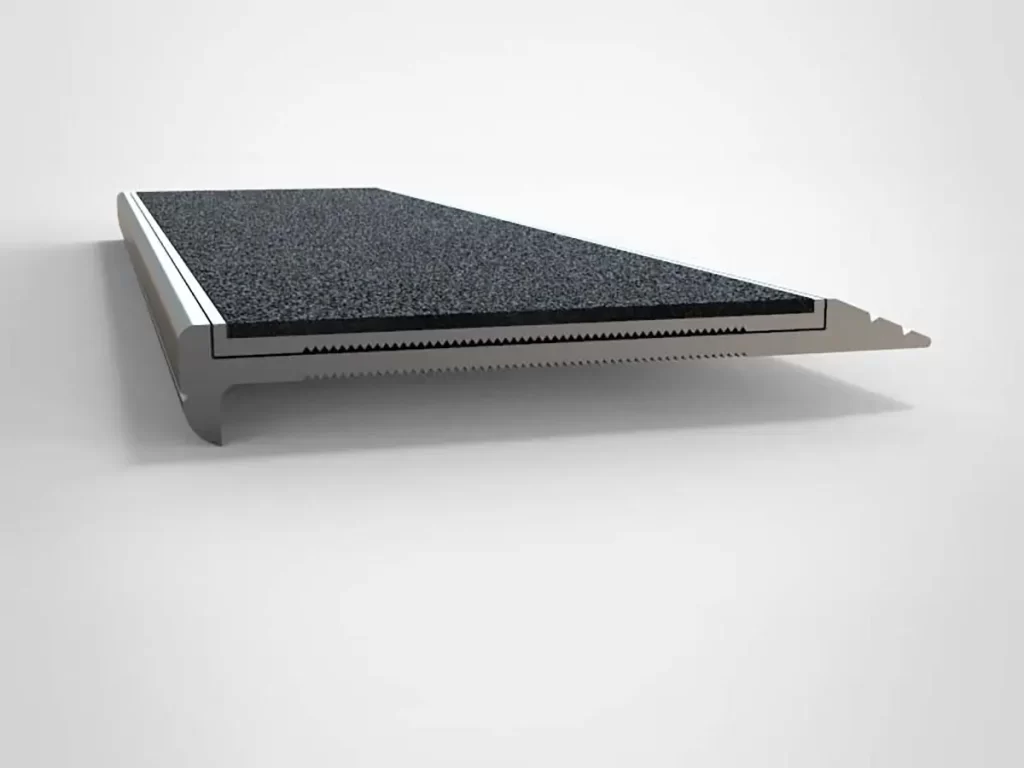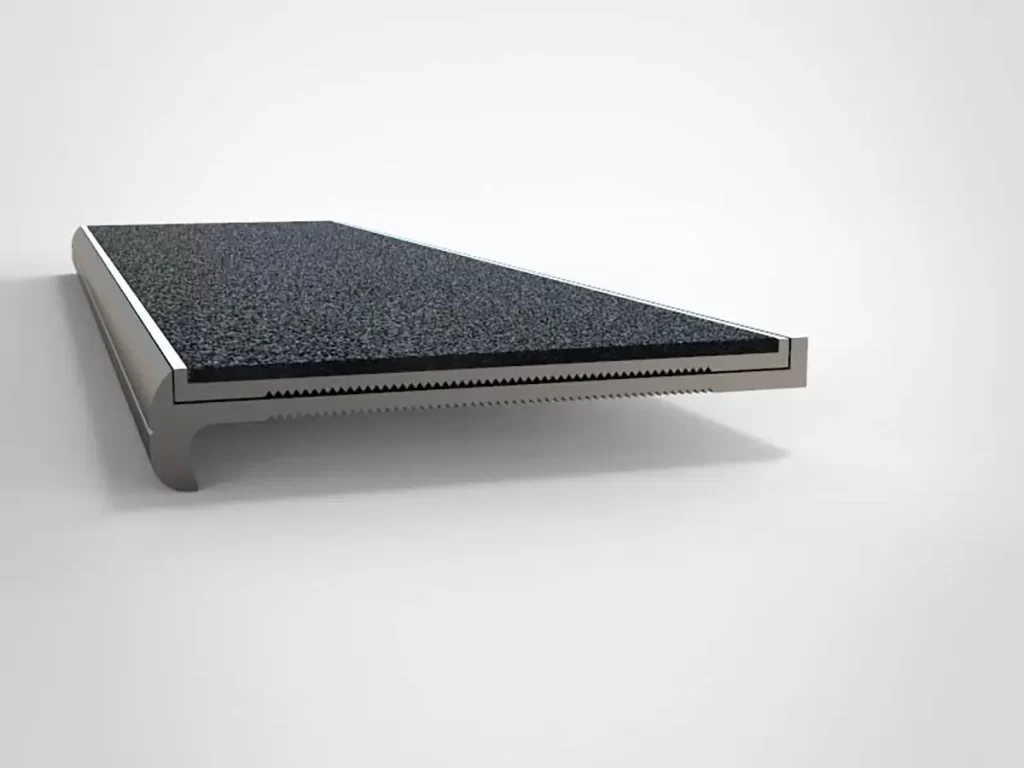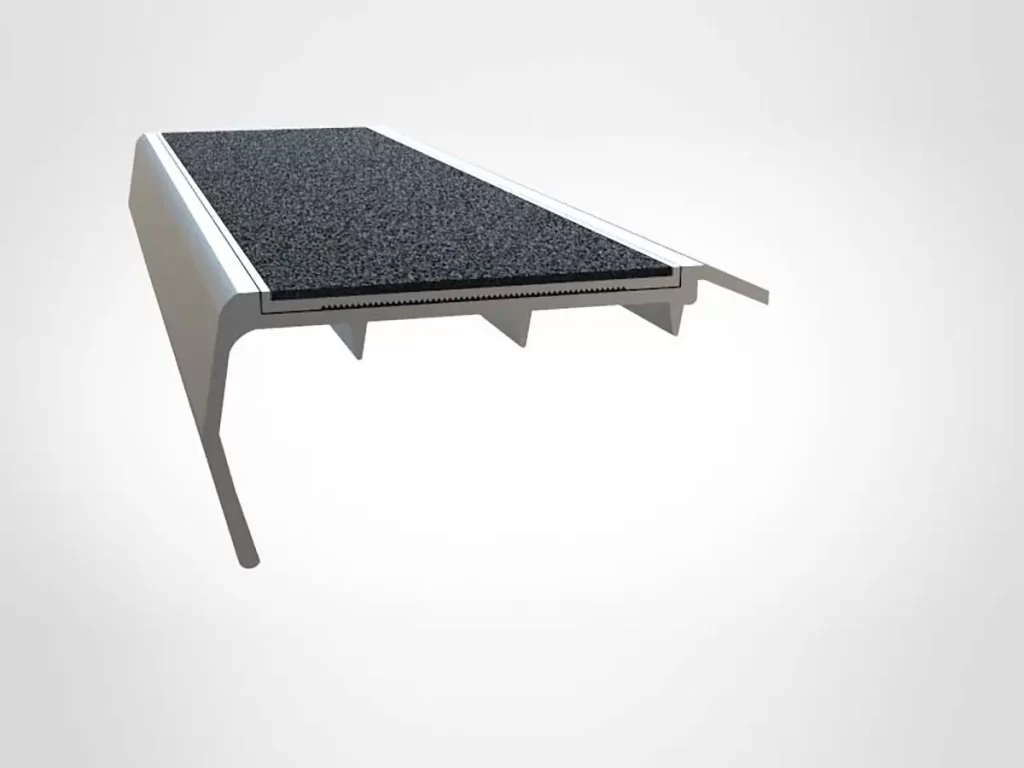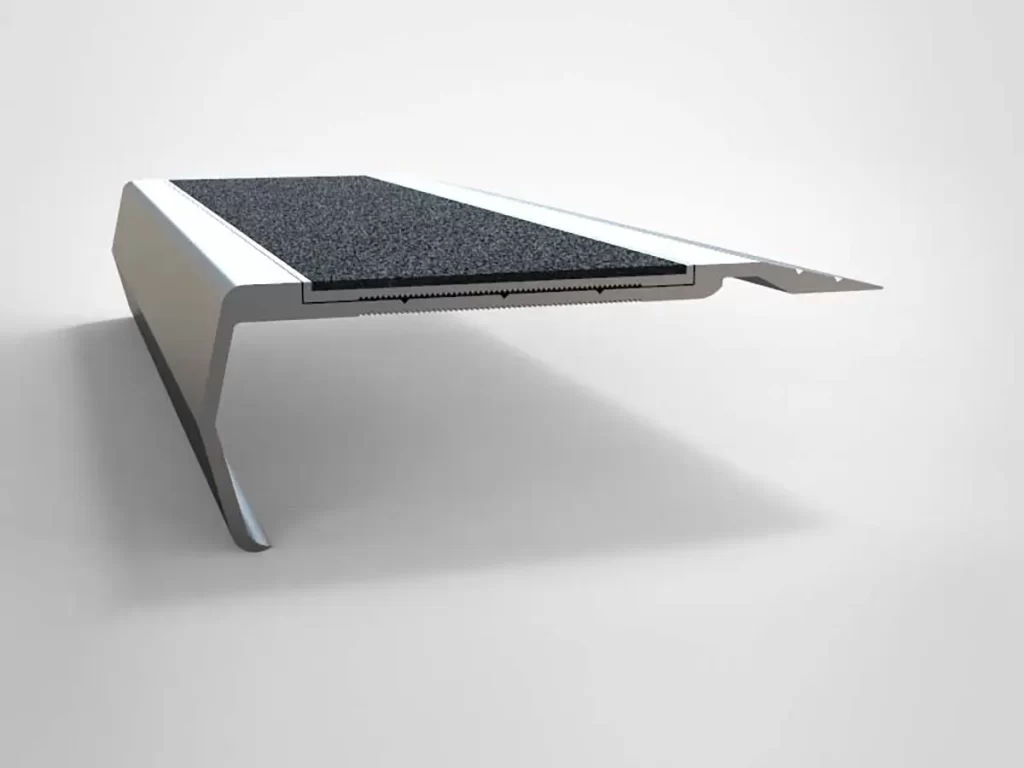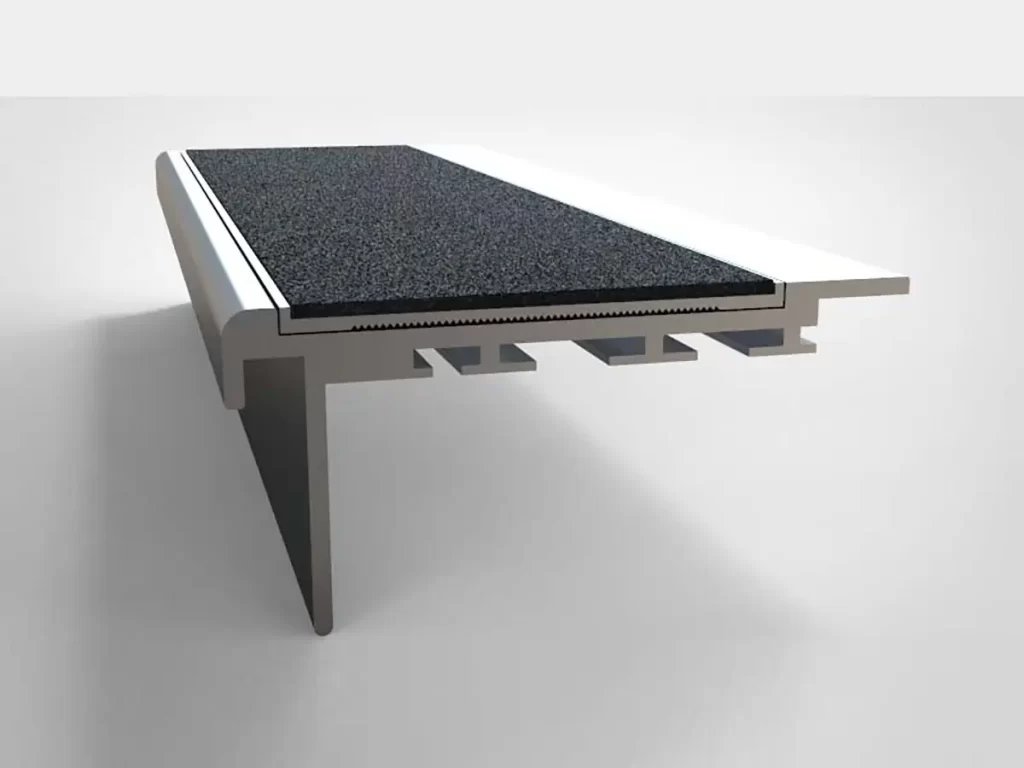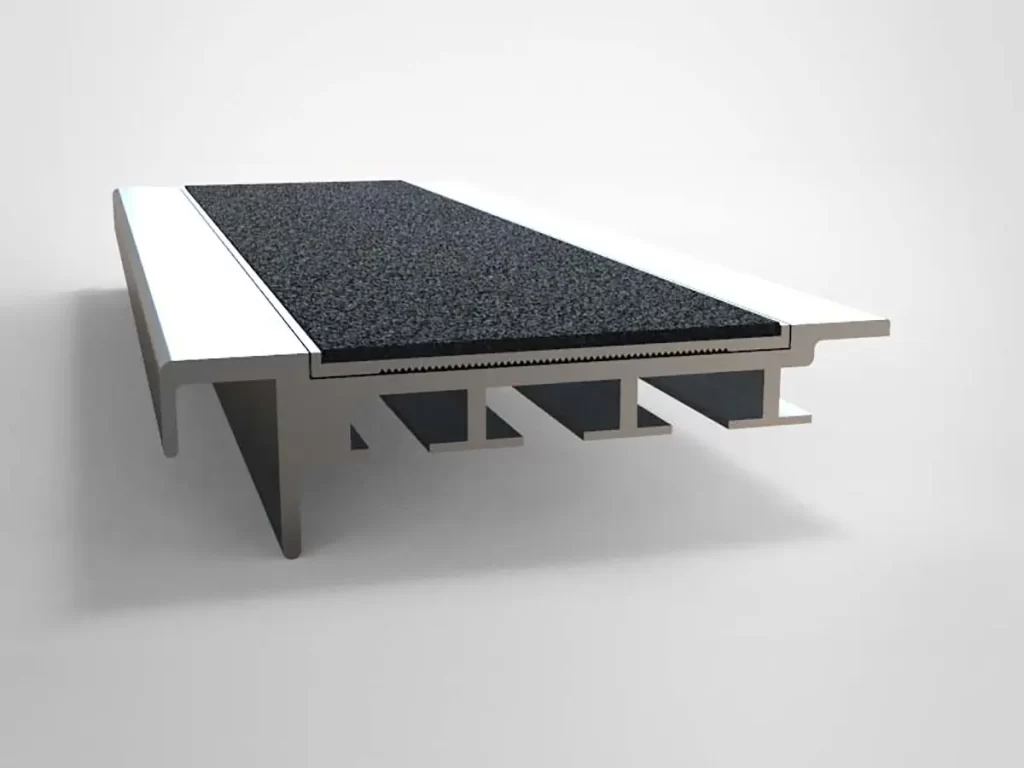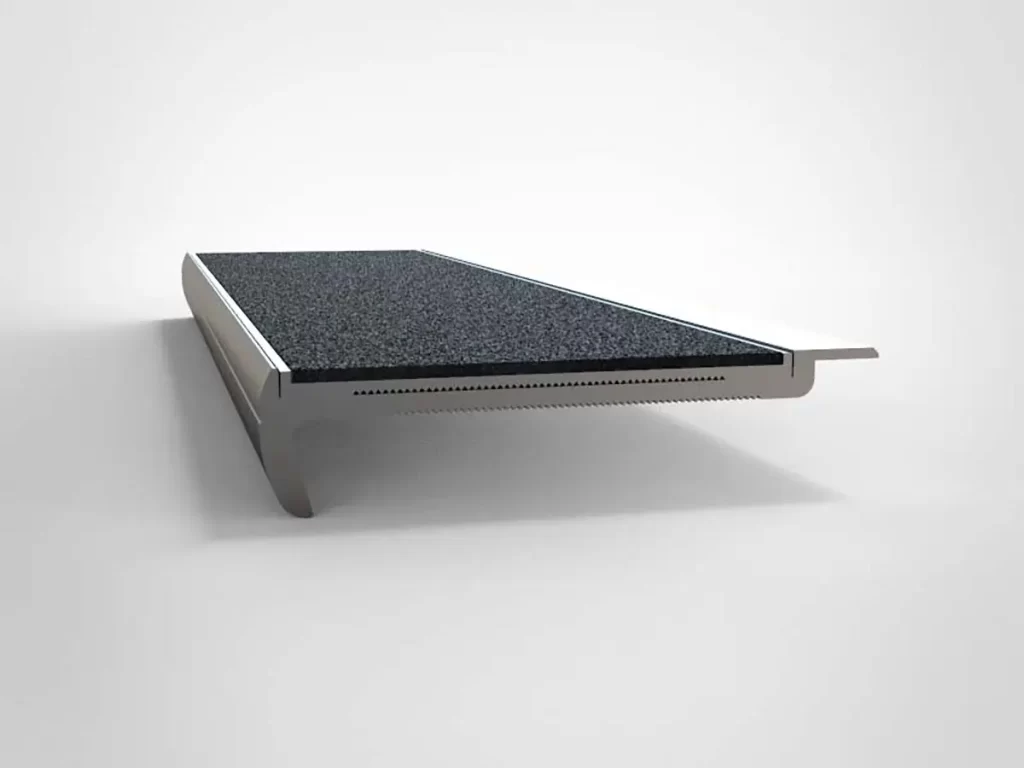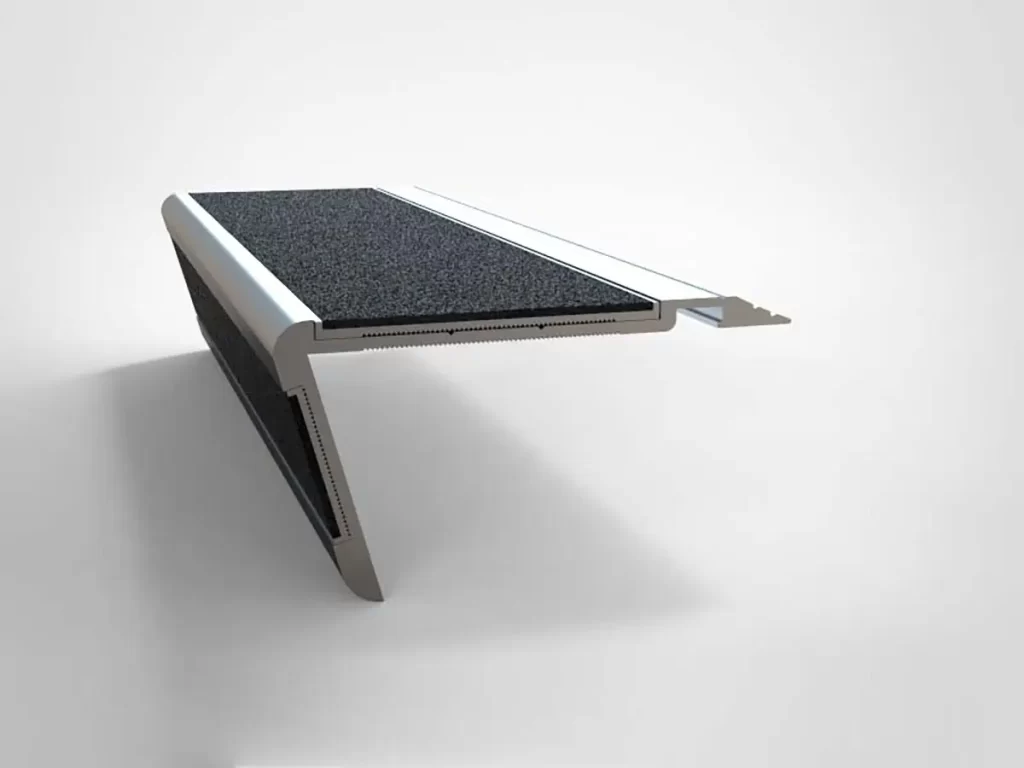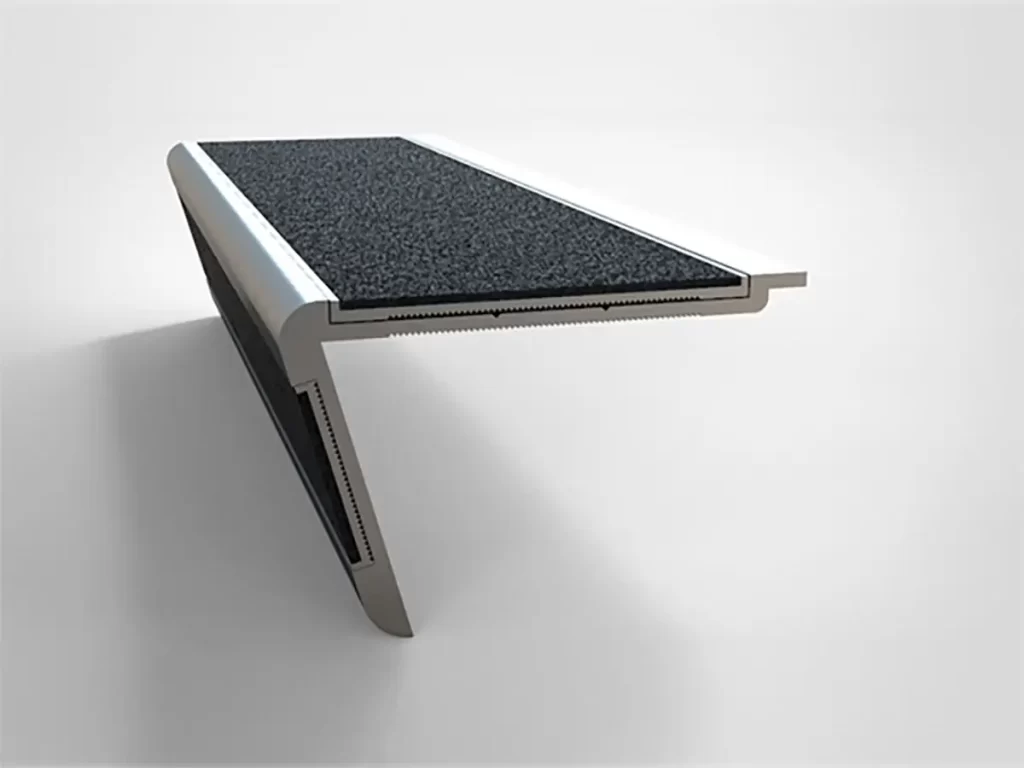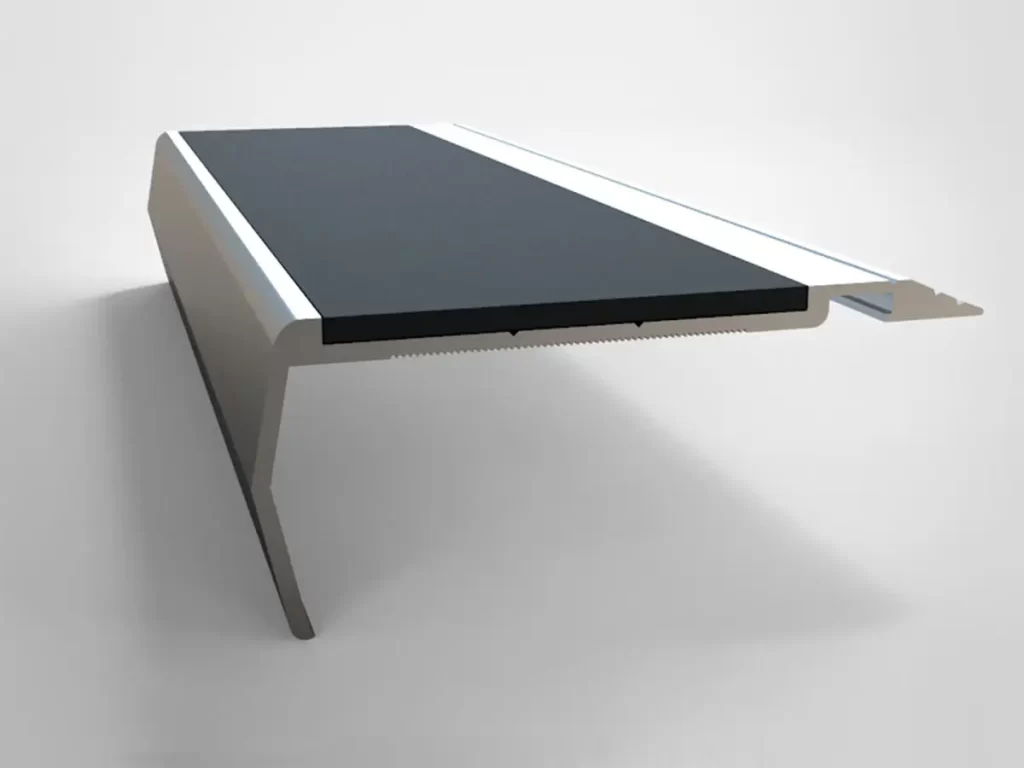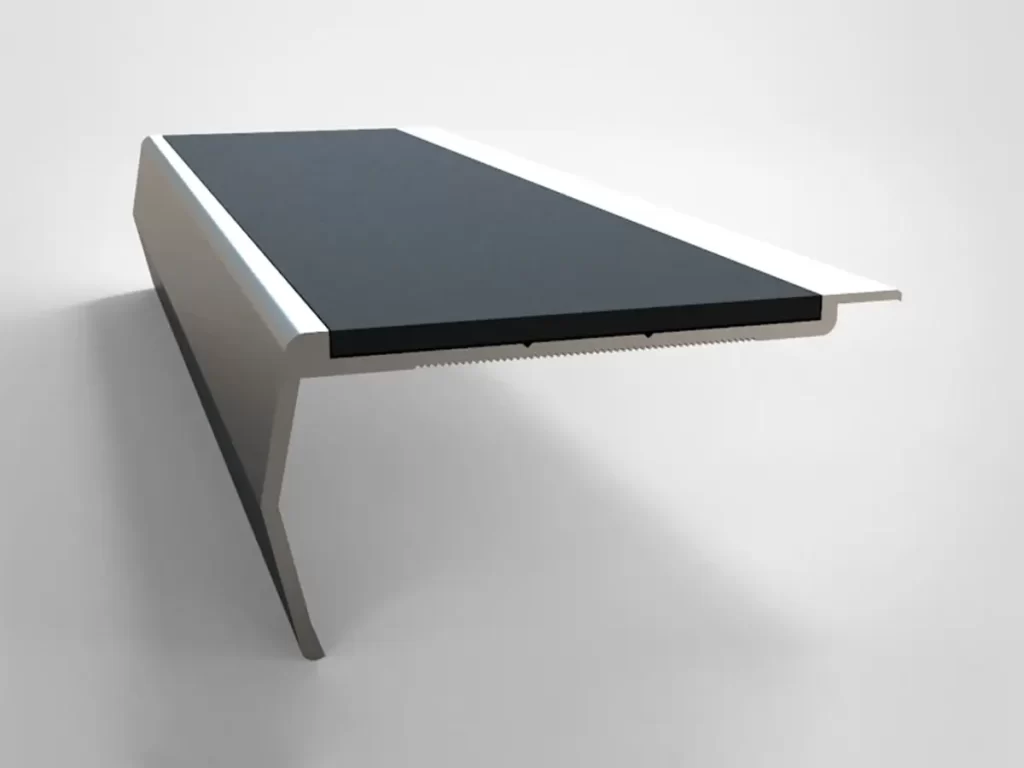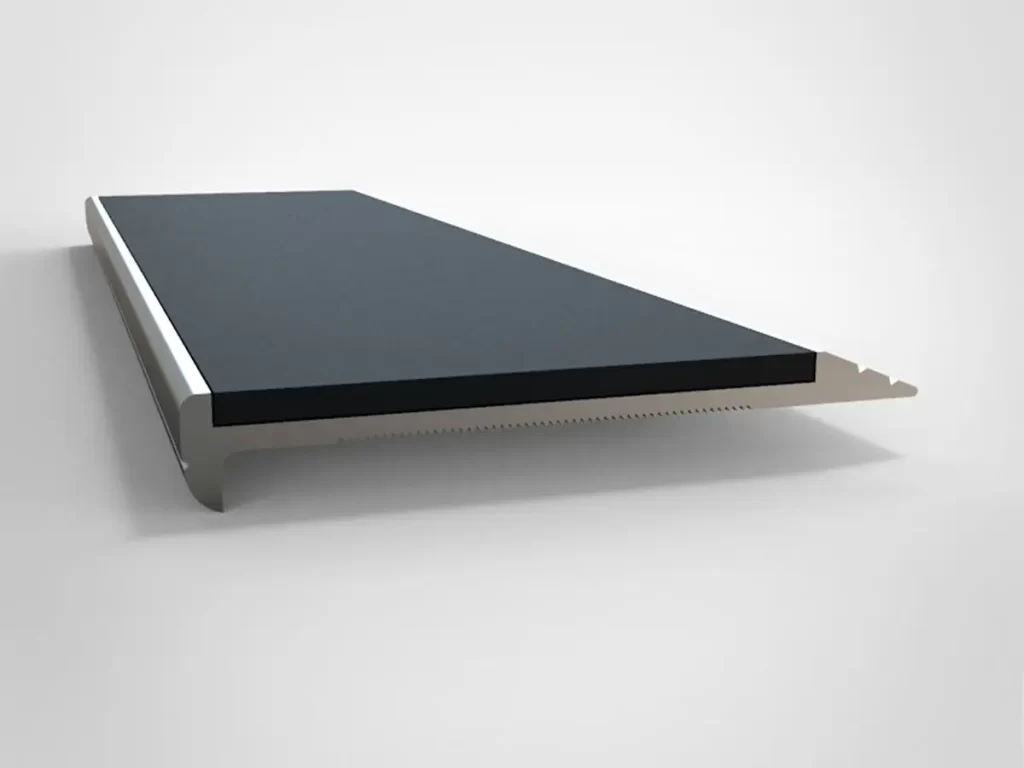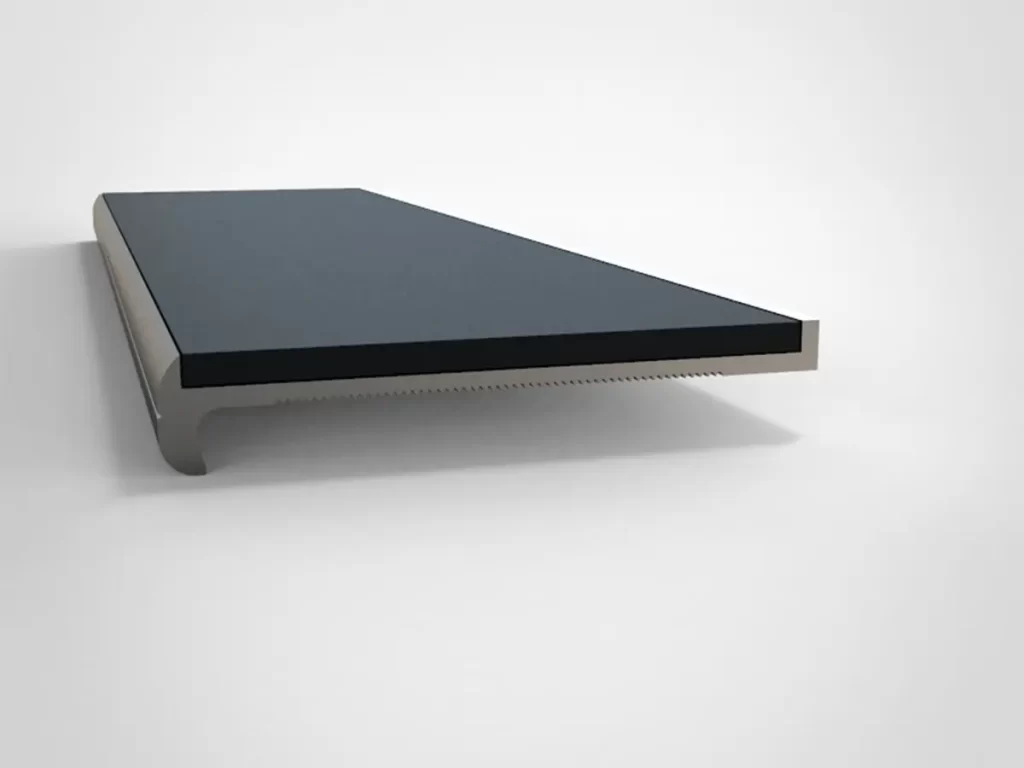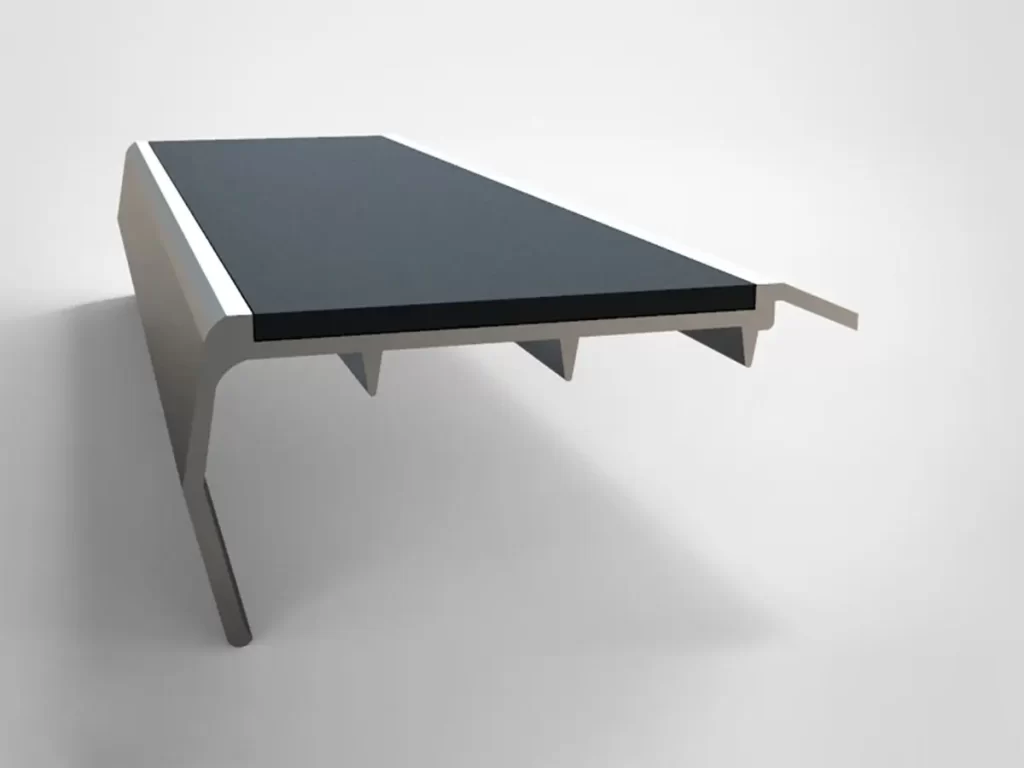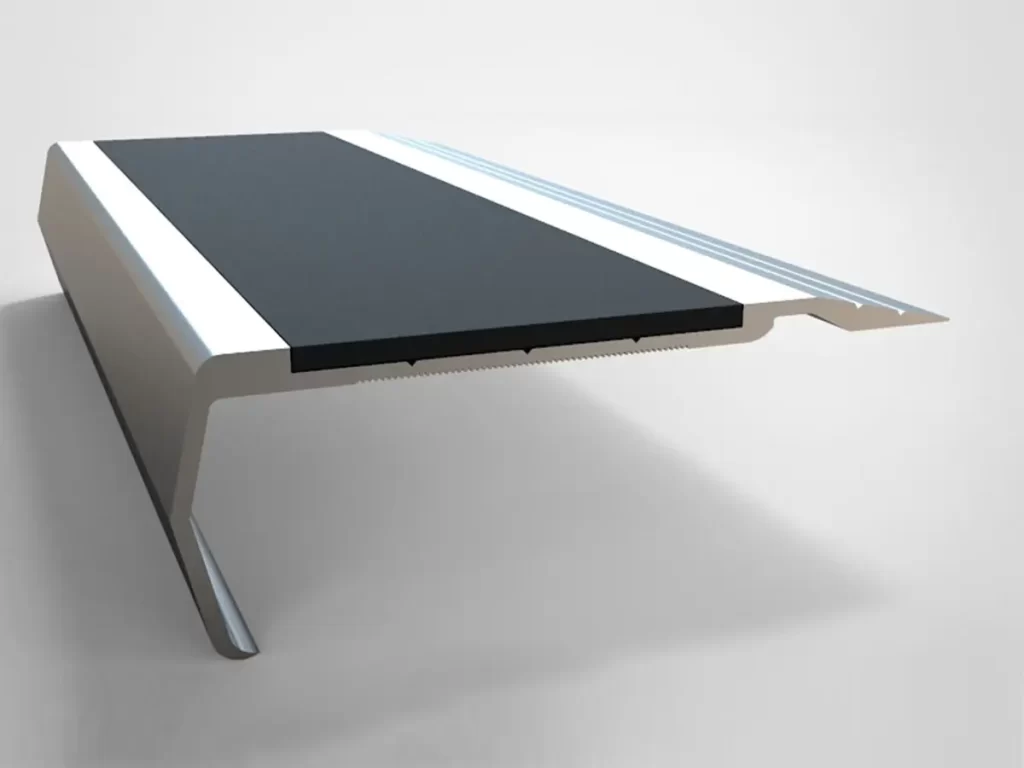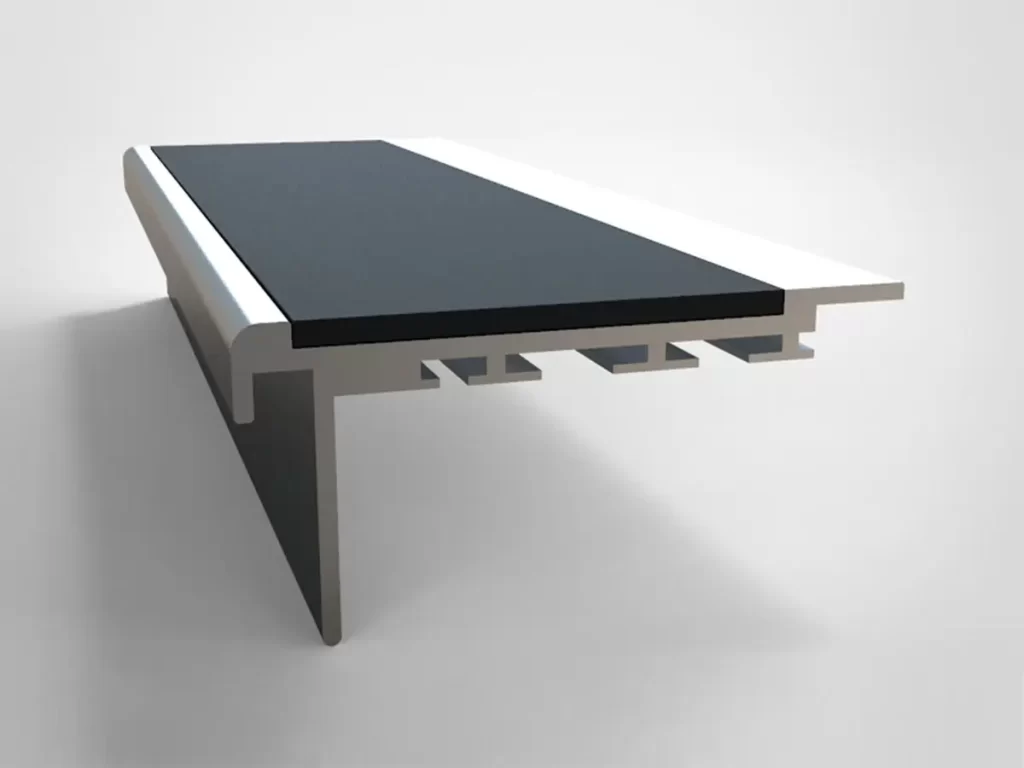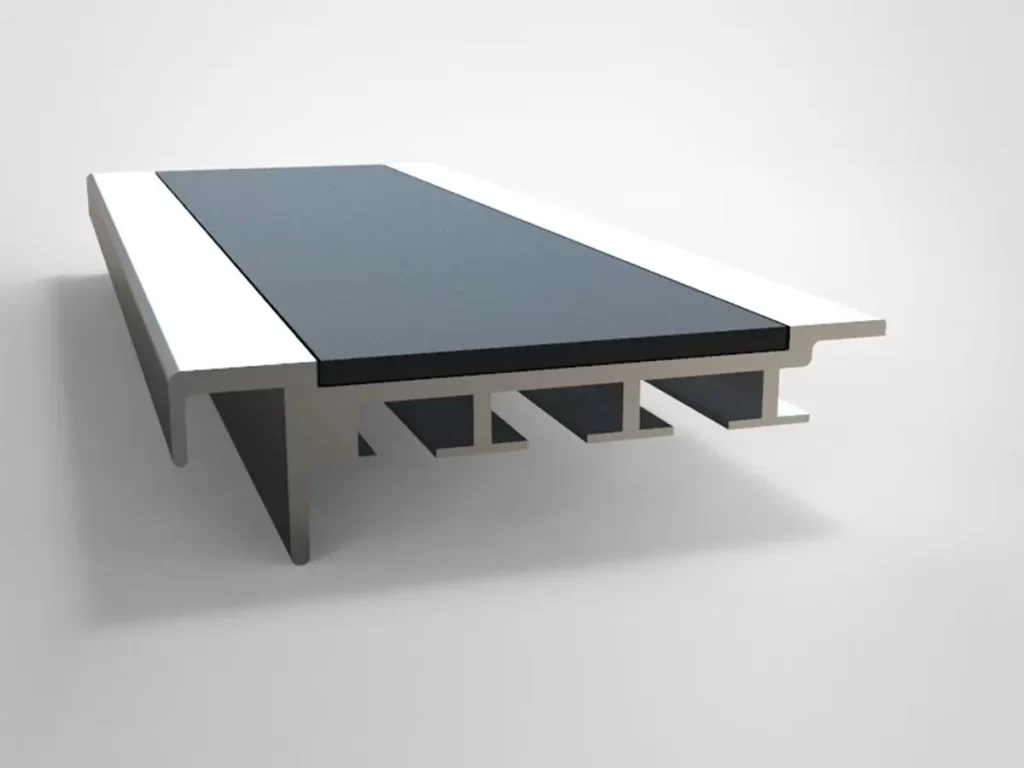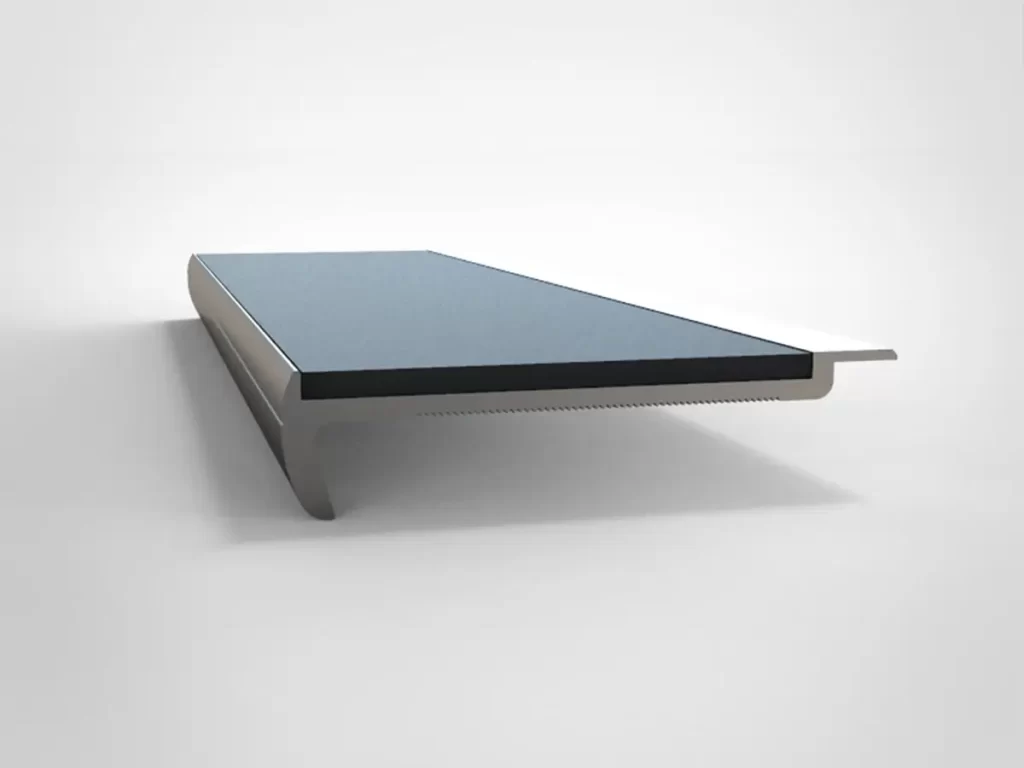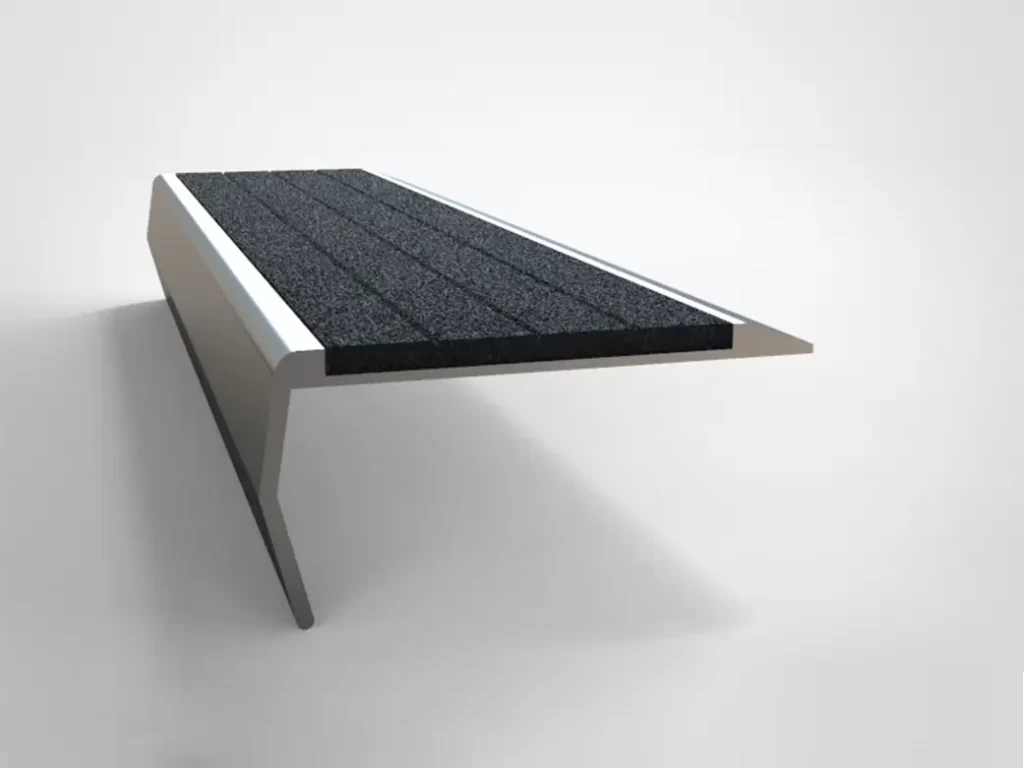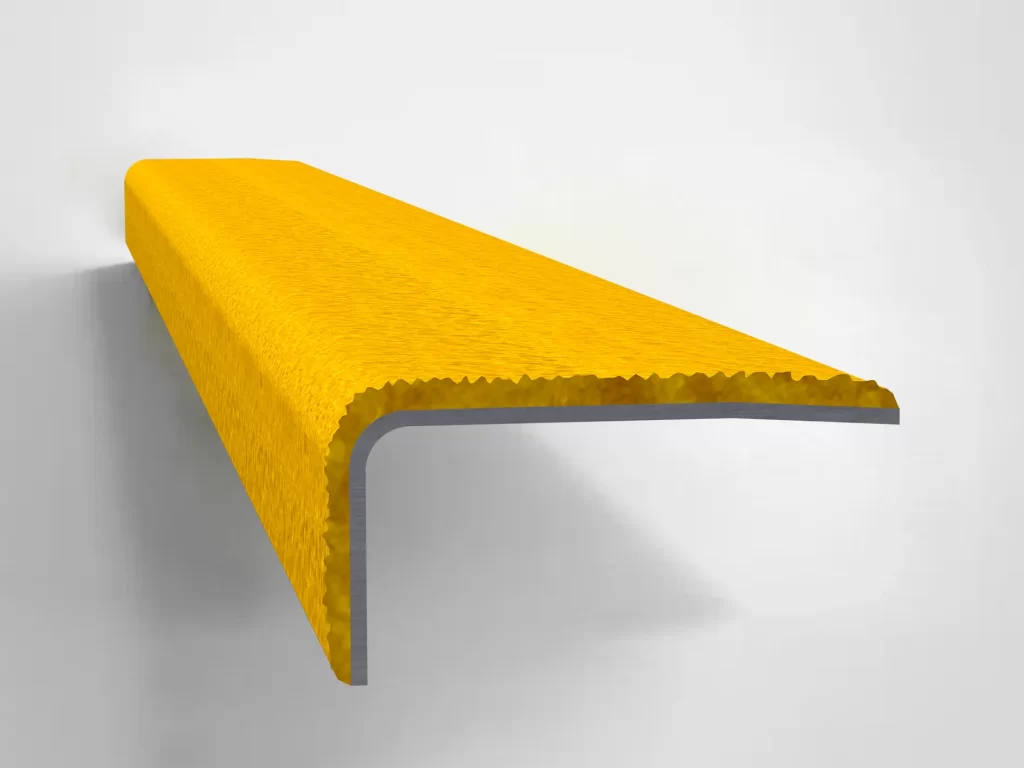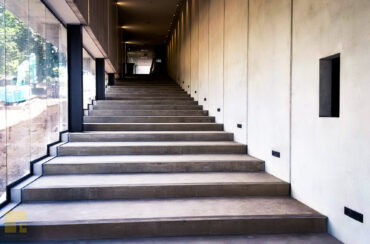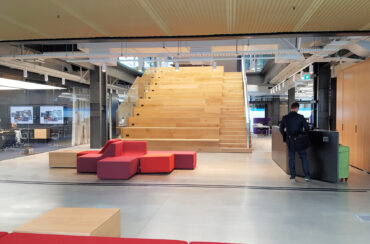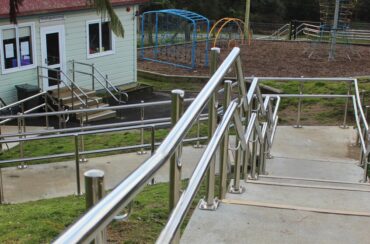Stair Nosing + Inserts
Stair nosing and inserts are designed to elevate safety and aesthetics in staircase construction. These components provide essential traction and visibility, mitigating the risk of accidents in diverse settings. By harmonizing these features, staircases achieve not only enhanced safety but also a visually inviting ambiance, ensuring a secure and appealing environment for users. Incorporating quality stair nosing and inserts can significantly enhance the overall experience and longevity of staircase installations.
Frequently Asked Questions
Freedom Works Stair nosing is a type of stair nosing that is designed to improve safety and durability on stairs. It is typically made from either solid stainless steel, solid brass or aluminium base with santoprene, or carborundum insert, and it can be anodised to further improve its durability.
Stair nosing is available in a variety of styles and colors, so it can be matched to the décor of any staircase. It is also available in a variety of widths, so it can be used on stair finish.
Here are some of the benefits of using stair nosing:
- Improved safety: stair nosing can help to improve safety on stairs by providing a high level of traction and preventing slips and falls.
- Durability: stair nosing is made from durable materials that can withstand heavy traffic and harsh conditions.
- Easy to maintain: stair nosing is easy to clean and maintain, requiring only occasional sweeping and mopping.
- Aesthetically pleasing: stair nosing is available in a variety of styles and colors, so it can be matched to the décor of any staircase.
If you are looking for a durable and safe stair nosing solution, stair nosing is a great option to consider.
Freedom Strategies Ltd Stair Nosing and Insert products includes:
- SMN100 Series – 4 Strip Carborundum with anodised aluminium
- SMN200 Series – Solid Carborundum with anodised aluminium
- SMN300 Series – Solid Santoprene with anodised aluminium
- SMI 500 Series – Solid Aluminium, Solid Stainless Steel and Solid Brass inserts
- SMN 800 Series – Industrial type of nosing
For more details about our product please download our Stepmaster Magazine.
Yes, there are standards and codes about stair nosing specific to New Zealand.
- NZBC D1/AS1 Accessibility and Mobility: This standard sets out the requirements for accessible design, including the design of stairs. Clause D1.3.3(g) of NZBC D1/AS1 states that stair treads must have a leading edge that can be easily seen. This can be achieved by using a contrasting color or material, or by using a raised or textured surface.
- NZS 4121 Structural Design Requiring Stair Nosing and treads: This standard sets out the structural requirements for stairs, including the design of stair nosings. Clause 8.3 of NZS 4121 states that stair nosings must project not less than 25mm and not more than 40mm beyond the leading edge of the tread.
- AS/NZS 4586:2013 Slip resistance classification of new pedestrian surface materials: This standard sets out the requirements for measuring and classifying the slip resistance of pedestrian surface materials. Clause 4.1.4 of AS/NZS 4586 states that stair nosings must have a slip resistance classification of P3 or higher.
In addition to these standards and codes, the New Zealand Transport Agency (NZTA) has published a guideline for the design and installation of stair nosings on public roads and footpaths: RTS 14 – Guidelines for facilities for blind and vision impaired pedestrians. RTS 14 provides specific guidance on the selection and installation of stair nosings to minimize the risk of tripping and slipping hazards for people who are blind or vision impaired.
All of these standards and codes are widely used in New Zealand to ensure that stair nosings are designed and installed in a safe and consistent manner.
Stair Nosing and Insert products can be installed in a variety of locations, including:
- Residential buildings: Stair Nosing and Insert products are ideal for use in residential buildings, such as homes, apartments, and townhouses. They can be installed on interior and exterior stairs, as well as on curved stairs.
- Commercial buildings: Stair Nosing and Insert products are also suitable for use in commercial buildings, such as offices, retail stores, and hospitals. They can be installed on stairs in lobbies, hallways, and public areas.
- Industrial buildings: Stair Nosing and Insert products can also be used in industrial buildings, such as factories and warehouses. They are ideal for use on stairs in high-traffic areas and on stairs that are exposed to harsh weather conditions.
Specifically, Stair Nosing and Insert products can be installed on a variety of stair types, including:
- Concrete stairs
- Wooden stairs
- Tile stairs
- Metal stairs
- Glass stairs
Stair Nosing and Insert products are also available in a variety of finishes to match any décor.
There are many benefits to installing Stair Nosing and Insert products, including:
- Improved safety: Stair Nosing and Insert products can help to improve safety on stairs by providing a high coefficient of friction to prevent slipping and tripping. This is especially important in high-traffic areas and on stairs that are exposed to harsh weather conditions.
- Increased visibility: Stair Nosing and Insert products are available in a variety of colors and finishes, which can help to increase the visibility of stairs and reduce the risk of accidents. This is especially important for people who are visually impaired.
- Reduced wear and tear: Stair Nosing and Insert products can help to reduce wear and tear on stairs by protecting the leading edge of the treads. This can extend the lifespan of stairs and reduce maintenance costs over time.
- Enhanced aesthetics: Stair Nosing and Insert products are available in a variety of finishes to match any décor. This can help to enhance the appearance of stairs and add a touch of elegance to any home or building.
Here are some specific examples of how Stair Nosing and Insert products can improve safety:
- In a residential home, Stair Nosing and Insert products can help to prevent children and older adults from slipping and tripping on the stairs.
- In a commercial building, Stair Nosing and Insert products can help to prevent customers and employees from slipping and tripping on the stairs, which can reduce the risk of lawsuits.
- In an industrial building, Stair Nosing and Insert products can help to prevent workers from slipping and tripping on the stairs, which can reduce the risk of workplace accidents.
Overall, Stair Nosing and Insert products are a safe and effective way to improve the safety, visibility, durability, and aesthetics of stairs.
Yes, Stair Nosing and Insert products are sustainable for the environment, depending on the materials used.
- Aluminium is a highly recyclable material, and aluminium stair nosing and insert products are made from a high percentage of recycled aluminium. This means that these products can be recycled at the end of their lifespan, which reduces waste and conserves natural resources. Aluminium is also lightweight and strong, making it a good choice for stair nosing and insert products.
- Stainless steel is another highly recyclable material. stainless steel stair nosing and insert products are made from a high percentage of recycled stainless steel. This means that these products can also be recycled at the end of their lifespan, which reduces waste and conserves natural resources. Stainless steel is also durable and resistant to corrosion, making it a good choice for stair nosing and insert products.
- Brass is a durable alloy that is also recyclable. brass stair nosing and insert products are made from a high percentage of recycled brass. This means that these products can also be recycled at the end of their lifespan, which reduces waste and conserves natural resources. Brass is also resistant to corrosion, making it a good choice for stair nosing and insert products.
- Santoprene is a thermoplastic elastomer that is known for its durability, resilience, and chemical resistance. It is also recyclable. Stepmaster Santoprene stair nosing and insert products are made from a high percentage of recycled Santoprene. This means that these products can also be recycled at the end of their lifespan, which reduces waste and conserves natural resources. Santoprene is also resistant to weathering and chemicals, making it a good choice for stair nosing and insert products.
- Carborundum is a silicon carbide mineral that is known for its hardness and durability. It is not recyclable. Stepmaster Carborundum stair nosing and insert products are made from a high percentage of Carborundum. This means that these products will last for many years without needing to be replaced. However, it is important to note that Carborundum is not recyclable, so it is important to dispose of these products properly at the end of their lifespan.
Overall, Stair Nosing and Insert products are a sustainable choice for stair nosing and insert products in New Zealand. They are made from durable and long-lasting materials, many of which are recyclable. Stepmaster is also committed to sustainable manufacturing practices.


